politicians
Barry Goldwater (Quotes)
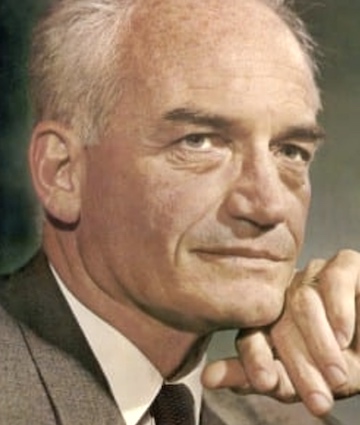
Barry Goldwater, a former Arizona U.S. senator and 1964 presidential candidate who was born on this day in 1908 and died in 1998, held traditional Republican conservative views on most issues but was also adamant about keeping state and church separate. His father was Jewish and converted to his wife’s Episcopalian beliefs, which his son adhered to while admitting he rarely got to church due to his busy lifestyle. Goldwater’s remarks below are from a 1981 Senate speech.
“One of the great strengths of our political system always has been our tendency to keep religious issues in the background. By maintaining the separation of church and state, the United States has avoided the intolerance which has so divided the rest of the world with religious wars.”
“There is no position on which people are so immovable as their religious beliefs. There is no more powerful ally one can claim in a debate than Jesus Christ, or God, or Allah, or whatever one calls this supreme being. … The religious factions that are growing throughout our land are not using their religious clout with wisdom. They are trying to force government leaders into following their position 100 percent.”
“I’m frankly sick and tired of the political preachers across this country telling me as a citizen that if I want to be a moral person, I must believe in A, B, C and D. Just who do they think they are? And from where do they presume to claim the right to dictate their moral beliefs to me?”
“The religious factions will go on imposing their will on others unless the decent people connected to them recognize that religion has no place in public policy. … We have succeeded for 205 years in keeping the affairs of state separate from the uncompromising idealism of religious groups and we mustn’t stop now.”
— Congressional Record (Sept. 15, 1981)
Nick Clegg
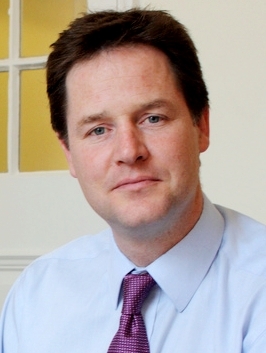
On this date in 1967, Nicholas William Peter Clegg was born in Chalfont St. Giles in Buckinghamshire, England. He speaks five languages: English, Dutch, French, German and Spanish. Clegg studied anthropology at Cambridge University and received a Master’s degree in political philosophy at the University of Minnesota. He interned at The Nation in New York under Christopher Hitchens before returning to Europe, where he interned at the European Commission and earned an M.A. in European affairs at the College of Europe in Bruges.
Clegg worked as a journalist and at the European Commission before being elected Member of the European Parliament for the East Midlands in 1999. In 2005 he was the liberal parliamentary candidate for Sheffield Hallam and was elected. Clegg was elected leader of the Liberal Democrats and rose to national prominence in the 2010 general election. The third-party Liberal Democrats received 23% of the vote and he became a power broker, as neither of the two major parties won a majority of seats. Clegg chose to ally with the Conservative Party and became deputy prime minister.
After being elected leader in 2007, Clegg was asked on the BBC Radio program 5 Live if he believed in God. He replied that he did not, though he later elaborated that he had “great respect” for people of faith. Clegg has stuck to his guns, continuing to describe himself as agnostic during the 2010 election campaign.
Clegg’s wife, Spanish-born Miriam González Durántez, is Catholic. They married in 2000 and have three sons.
Since 2013 he has hosted the weekly radio show “Call Clegg” and in 2018 debuted a podcast called “Anger Management with Nick Clegg, ” in which he interviews prominent people about the politics of anger. In October 2018 Facebook announced Clegg had been hired as a vice president, public relations officer and lobbyist in the area of global affairs and communications.
PHOTO: By David Angell under CC 2.5.
BBC: Do you believe in God?
CLEGG: No. … I am not an active believer.— Clegg, BBC interview (Dec. 20, 2007)
Giuliano Ferrara
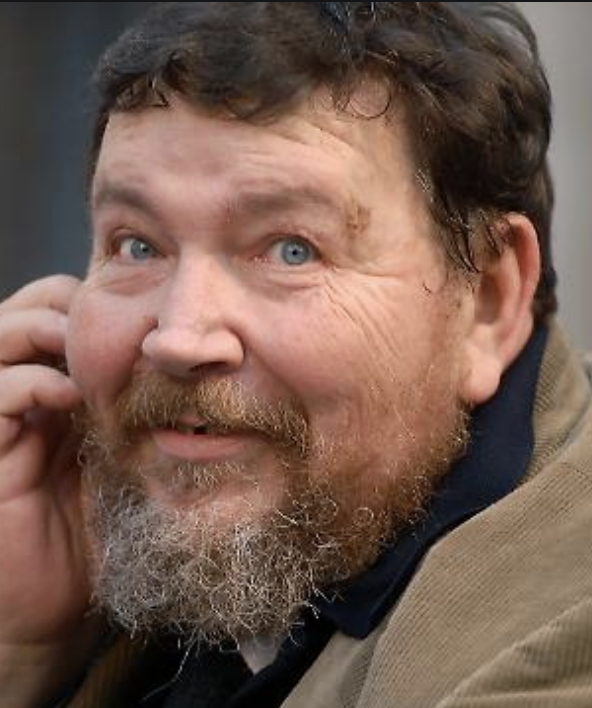
On this date in 1952, Giuliano Ferrara was born in Rome. He served as chief organizer for the Italian Communist Party in his 20s. He left the party in 1982, later saying he admired Marx but not Marxism, and became known for being a conservative and strong advocate against abortion. During Prime Minister Silvio Berlusconi’s first seven-month term in 1994, Ferrara served as his cabinet spokesman, senior aide and chief political strategist.
In 1996 he founded the controversial daily newspaper Il Foglio, published in Rome, and became its editor in chief until retiring in 2015 as editor but continuing to write. He also hosted the popular talk show “8½.” In 2008 he unsuccessfully ran for the parliament on an anti-abortion platform.
In 2008 he was described in the New York Times as an “avowed atheist and nonbeliever.” He referred to himself as a “devout atheist,” according to a 2008 article in the UK Independent. However, he had denied a similar label in April 2007 in the Italian weekly magazine Tempi: “But I’m not ‘a devoted atheist.’ Anyone who knows me knows that I am the opposite of a ‘devotee.’ I am a disciplined and rational person, but ‘devoted’ no.”
In 1987 he married U.S.-born Anselma (née Selma Jean) Dell’Olio. In 1992 her and Ferrara’s television program “Love Lessons” was canceled by Berlusconi after one episode due to pressure from the Christian Democracy political party.
"I'm not a converted Catholic. I'm still a nonbeliever, even though my idea of reason is the idea of a reason which is open to mystery."
— Ferrara, New York Times interview (April 6, 2008)
Albert Gallatin
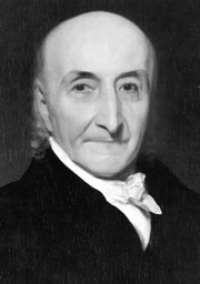
On this date in 1761, Albert Gallatin (né Abraham Alfonse Albert Gallatin) was born in Geneva, Switzerland. He studied mathematics, natural history and Latin at Geneva University, where he graduated with honors in 1779. Voltaire had been a friend of his grandmother and was an influence on Gallatin, also a deist. In 1780, to evade family pressure to join up with the Hessians, Gallatin gave up family and fortune to emigrate to America to demonstrate “a love for independence in the freest country of the universe.”
He taught French at Harvard, then moved to Virginia in 1785, where he was elected to the legislature. After being elected to the U.S. Senate, Gallatin was rejected by the body as a non-citizen, but returned to Congress in the House in 1795. He wrote “Views of the Public Debt, Receipts & Expenditures of the U.S.” in 1800, which is described by the U.S. Department of the Treasury website as “still a classic” analysis of the fiscal operations of government under the Constitution.
Jefferson believed the Alien and Sedition Act was framed to drive Gallatin — who worked to keep down expenses, especially for war and the military — from office. Jefferson offered Gallatin the position of secretary of state. He served under both Jefferson and Madison from 1801-13. He was minister to France from 1815-23, then served as an envoy to Great Britain. A lifelong scholar, he was a co-founder of New York University.
Determined to keep it secular, he later resigned from a position there when “a certain portion of the clergy had obtained control.” Gallatin opposed slavery and helped negotiate the Treaty of Ghent, ending the War of 1812. He served with the American Ethnological Society, helping to preserve native languages, and was president of the New York Historical Society. (D. 1849)
"[A] foundation free from the influence of clergy."
— Gallatin's stated aim for New York University, cited by Joseph McCabe, "A Biographical Dictionary of Modern Rationalists" (1920)
Olof Palme

On this date in 1927, Swedish statesman Sven Olof Joachim Palme was born into an upper-class, conservative Lutheran family in Stockholm. His businessman father, Gunnar Palme, died when he was 6, and Olof’s early education came from private tutors as he was a sickly child. After compulsory military service in an artillery regiment, he enrolled at the University of Stockholm, later transferring to Kenyon College, in Gambier, Ohio, a school of fewer than 2,000 students affiliated with the Episcopal Church.
He wanted to go to school in the U.S. and applied for scholarships through the American Scandinavian Foundation. His grandfather, a Lutheran bishop, insisted it be a Protestant college. “Suddenly I received a letter from Kenyon,” he told the Alumni Bulletin in 1984. “I had never heard of the college, but as it turned out I was lucky, extremely lucky to land there.” There he met a lifelong friend, actor Paul Newman. Fluent in English, French and German, he graduated in a year using credits earned in Stockholm.
He joined the Swedish Social Democratic Party during law school and worked for socialist Prime Minister Tage Erlander before being elected to the parliament in 1957. He had married Lisbeth Beck-Friis, a child psychologist, in 1956. They would have three sons, Joakim, Mårten and Mattias. Palme was named Erlander’s minister of education in 1967 and succeeded him in 1969 at a time when Sweden was strongly critical of U.S. involvement in Vietnam and offered asylum to American military conscientious objectors and deserters. The Social Democrats lost power in 1976 but regained it in 1982, returning Palme to head of state, where he remained until his assassination at age 59 on Feb. 28, 1986.
Christer Pettersson, who had a long record of petty crimes and substance abuse, was convicted of shooting Palme in the back with a .357 handgun while he and Lisbeth were walking home with no bodyguard from a movie. An appeals court soon overturned the conviction for lack of evidence, and the murder weapon was never found.
After a secular service attended by over 150 world leaders at Stockholm City Hall, he was buried in a private ceremony in the cemetery at Adolf Fredrik Church, where René Descartes was first buried in 1650 before his remains were moved to France. While Palme didn’t publicly air his views about religion, he didn’t attend church and was widely believed to be an atheist.
His time in office was marked by an expansion of the social safety net and support for human and women’s rights and education. He strongly opposed war and apartheid. “Olof Palme, party chairman and prime minister. Sweden’s Social Democratic Workers Party raised the stone” is engraved on a boulder at the head of his grave. (D. 1986)
“The American politicians have a ridiculous moral argument. They teach children and the public to believe in God because in their opinion the existence of God is necessary to assure justice in their own country and in the world. Their fear issues and beliefs in a defined Hell are the other half of the argument. Why should you and I, good respectable Scandinavian human beings, be punished in a Hell?”
— Palme, quoted in "My America: The Culture of Giving" by Jens Moe (2007)
Jared Huffman
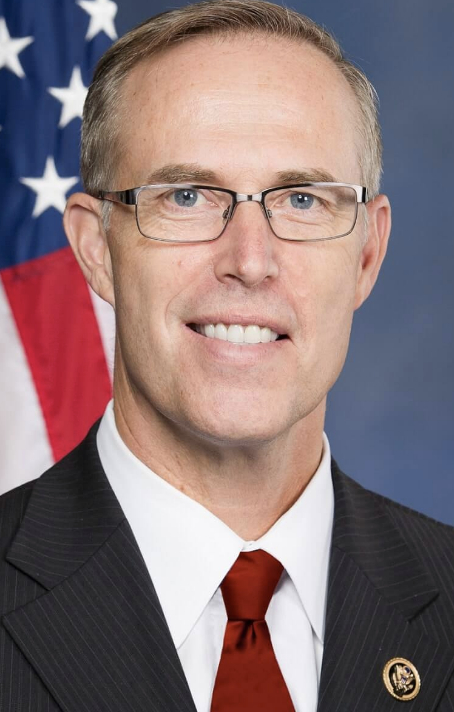
On this date in 1964, Jared William Huffman, attorney, politician and freethinker, was born in Independence, Mo., to Phyllis and Bill Huffman. He was raised in the Reorganized Church of Jesus Christ of Latter-day Saints, which is headquartered in Independence. It is the second-largest branch of the Latter-day Saints movement, was founded to repudiate the doctrine of plural marriage and is known as the movement’s more liberal, Midwestern wing. It changed its name in 2001 to the Community of Christ.
The youngest of three brothers, he was raised by his mother after his parents divorced. His father died when he was 19, and it was then that he started to question his faith. A stellar volleyball player in high school, his team won the Junior Olympics and he was recruited to play at the University of California-Santa Barbara, where he earned a B.A. in political science. Three times he was an NCAA volleyball All-American and went on to play for Team USA in 1987 when it was ranked No. 1 in the world.
After graduating cum laude in 1990 from the law school at Boston College, a Jesuit school, Huffman set up a private practice specializing in consumer and public interest law. Among his victories was a case decided in favor of the National Organization for Women that required all California public universities to comply with federal Title IX barring gender discrimination.
He then worked as a senior attorney for the Natural Resources Defense Council and helped restore a 153-mile stretch of the San Joaquin River in California’s Central Valley. He also served 12 years as a director of the Marin Municipal Water District. Running as a Democrat, he won three terms in the State Assembly, representing the Bay Area. Since 2013 he has served in the U.S. House as the representative for Marin, Sonoma, Mendocino, Trinity, Humboldt and Del Norte counties, from the Golden Gate Bridge to the Oregon border.
Huffman’s mother was “deeply religious until her dying day.” After she died nine days short of her 87th birthday in 2017, he found it easier to be publicly honest about his lack of religious belief. (“Freethought Matters,” Sept. 3, 2019) He calls himself a humanist. Huffman is “the only avowed non-theist in Congress.” (Washington Post, April 9, 2020)
Comic Stephen Colbert once teased him about his “unspecified” religious status on a Pew Forum questionnaire. “Come on, grow a pair. What is it? Are you an atheist?” “I don’t know,” Huffman replied.“Agnostic then?” “Perhaps.” Colbert picked up his pen while saying, “I’ll just put you down for ‘heathen-slash-hell-bound.’ ” (“The Colbert Report,” Sept. 23, 2014)
In 2018, Huffman co-founded the Congressional Freethought Caucus with Reps. Jerry McNerney, D-Calif., Jamie Raskin, D-Md., and Dan Kildee, D-Mich. The caucus is composed of about a dozen members “who feel strongly about the secular character of our government,” said Huffman. Nonbelief is not a prerequisite for caucus membership. Kildee and McNerney are Catholic, others are Jewish and Hank Johnson of Georgia is Buddhist. (Washington Post, April 9, 2020)
“I have no problem with people practicing their religion,” Huffman said in a 2017 interview, adding that he strongly objects to government endorsement of religion, which is unconstitutional. His wife and children regularly attend Catholic Mass. (San Francisco Chronicle, Nov. 16, 2017) He and Susan live in San Rafael with their children, daughter Abigail (b. 2000) and son Nathan (b. 2003).
Huffman was the recipient in 2018 of FFRF’s Emperor Has No Clothes Award and accepted it at the national convention in San Francisco. (His very thoughtful and at times humorous acceptance speech is here). He has also appeared on FFRF’s “Freethought Matters” TV talk show that airs weekly.
He was the American Humanist Association’s 2020 Humanist of the Year.
“Members of Congress are asked all the time about their religion, and you can get away with ducking the question. You can hide behind ambiguous labels like ‘non-denominational,’ but something in my conscience was gnawing at me for not just telling the truth.”
“We need to defend the line of separation between church and state. We need to support responsible public policies based on facts and science and reason and, of course, we need to defeat the War on Festivus.”
— Huffman remarks to FFRF's 41st annual convention in San Francisco (Nov. 2, 2018)
August Bebel
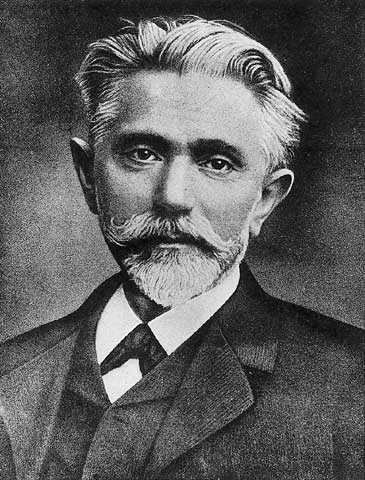
On this date in 1840, Ferdinand August Bebel, German politician and social reformer, was born in Cologne. As a young man he settled in Leipzig, the hub of German political activity, and became active with the radical Gewerblicher Bildungsverein (Industrial Educational Association). He studied Marx and Engels and other prominent figures in economic and social history. Bebel developed a reputation as a powerful speaker and was elected to the North German Constituent Reichstag in 1867, representing the Saxon People’s Party.
He believed less in revolution to effect social change and more in reforming existing political and social structures. Bebel believed women were enslaved through social institutions such as marriage, and his popular tract “Women and Socialism” (1897) advanced that idea. He co-founded the German Social Democratic Party in 1869, and by the time he died at age 73, his tract had been widely distributed and had been read at the Second International in Paris in 1889.
In his 1888 history of German socialism, British author William Harbutt Dawson wrote, “[Bebel] is without religion, and he is never tired of parading the fact, even having himself described in the Parliamentary Almanacs as ‘religionless.’ ” (D. 1913)
“We aim in the domain of politics at Republicanism, in the domain of economics at Socialism, and in the domain of what is today called religion at Atheism.”
— Bebel, Reichstag speech, March 31, 1881; quoted in "German Socialism and Ferdinand Lassalle: A Biographical History of German Socialistic Movements During This Century" by W.H. Dawson (1888)
Robin Cook
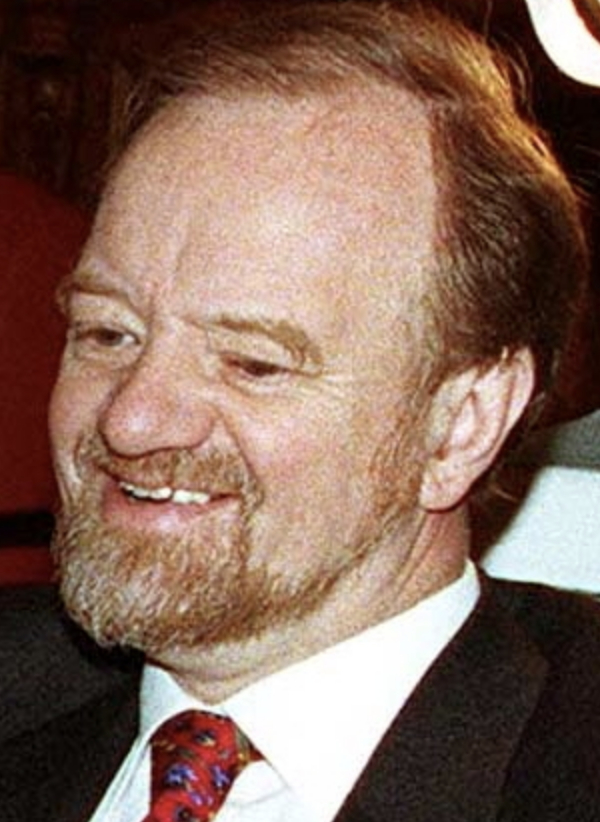
On this date in 1946, diplomat Robert Finlayson “Robin” Cook was born in Bellshill, Lanarkshire, Scotland. Cook attended Aberdeen Grammar School, where he was nicknamed Robin, and graduated with an honors degree in English literature at Edinburgh University, where he was the features editor of the student newspaper.
After chairing the Scottish Association of Labour Students in the 1966-67 academic year, Cook became a lecturer with the Workers’ Educational Association. He served as secretary of the Edinburgh City Labour party in the early 1970s and was elected to the Edinburgh Corporation at age 26, one of Scotland’s youngest councillors. Cook held prominent posts in the Labour Party, including spokesman on economic affairs, shadow health secretary, Tony Blair’s foreign affairs spokesman (in 1994), and foreign affairs secretary in 1997, when Labour came to power.
Cook quit his post in Blair’s cabinet in 2003 because he had, according to BBC News, become “increasingly angry” about his failure to convince the prime minister to avoid war against Iraq. Cook died at the age of 59 after suffering a heart attack while walking in the Highlands of Scotland. At Cook’s funeral service, Richard Holloway, who led the service, “told mourners that as an avowed atheist Mr. Cook would have raised a ‘quizzical eyebrow’ at the service being held in St. Giles Cathedral. But he said it was an ‘entirely appropriate’ venue because … Mr. Cook was a ‘Presbyterian atheist.’ ” (BBC News, Aug. 12, 2005)
PHOTO: Cook in 1997 at a meeting with U.S. Defense Secretary William Cohen.
“Mr. Cook had been an avowed atheist, who would, in the normal course of events, have steered well clear of organised religion.”
—
Magnus Linklater, noting the irony of Cook's funeral being held in a Christian church, The Times of London (Aug. 13, 2005)
Benito Juárez
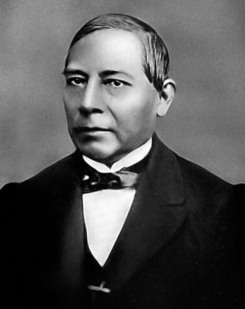
On this date in 1806, Benito Pablo Juárez García, who became the 26th president of Mexico, was born in the village of San Pablo Guelatao, Oaxaca. His parents, both indigenous Zapotec Indians, died of diabetes-related complications when he was 3, leaving Juárez to be raised by his uncle. At 12, he walked 40 miles to the city of Oaxaca to move in with his sister and begin his education.
Because of his obvious intelligence, he was given a place in the city’s seminary. He graduated in 1827 but decided to study law instead of joining the church. His political career began in 1831 when he became an official for the Oaxacan Town Council, representing the anti-establishment Liberal Party. In 1835, he was elected Liberal deputy to the federal legislature.
Juárez was elected governor of Oaxaca in 1846 and used his power to end corruption and invest in public goods, such as roads, new buildings, and new schools. After a few months in office in 1857 as Supreme Court president, he began his tenure as president of the nation on Jan. 15, 1858, serving until his death.
He is noted for his dedication to the causes of the poor, particularly the impoverished indigenous people, and for focusing on education and infrastructure rather than on the Mexican military. He is also celebrated for leading a successful resistance to European takeover. Also during his time as president, he worked as a secularist with the Liberal Party to dismantle the control the Catholic Church held over Mexico and the government.
During his time in office, the church, which was the largest landholder in Mexico, was stripped of much of its holdings and the Constitution of 1857 severed ties between church and state and guaranteed religious liberty for all citizens. Juárez was keenly aware of the injustices perpetrated by the church, particularly against indigenous people, who had been treated as heretics and killed if they refused to convert to Catholicism.
He famously said, “Among individuals, as among nations, respect for the rights of others is peace.” Juárez was married to Margarita Maza in 1843. They had 12 children. He died of a heart attack in 1872.
"Priests of any cult who, abusing their ministry, excite hate or disrespect for our laws, our government, or its rights, will be punished by three years' imprisonment or deportation."
— Juárez decree of Aug. 30, 1862
Neil Kinnock
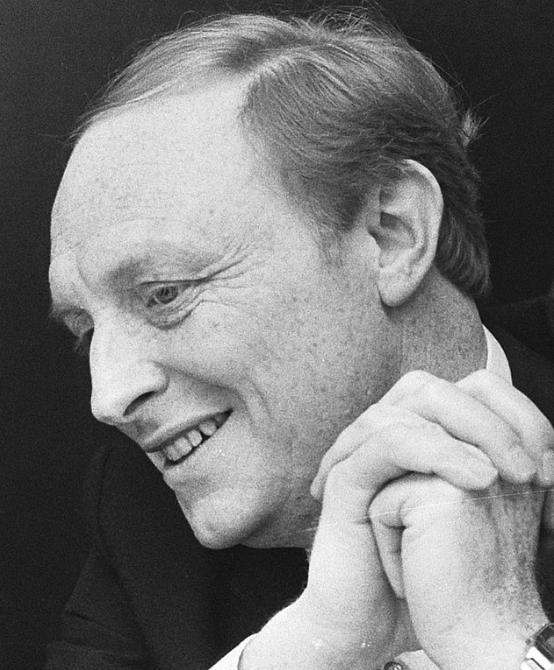
On this date in 1942, British Labour Party leader Neil Kinnock was born in Tredegar, Wales. His father was a miner and his mother a nurse. Neil attended the University College, Cardiff, where he met his wife, Glenys, who became a Labour MP. Kinnock was elected to Parliament with the Labour Party at age 28 and became party leader by 1983. He resigned in 1992 after his party’s national defeat.
In 1995 he became the European Union’s European Commissioner, then vice president (1999-2004). In 2005 he was introduced into the House of Lords as Baron Kinnock of Bedwelty, which he accepted “for practical political reasons.”
He has been described as an agnostic and an atheist. He and his wife are both patrons of Humanists UK, a charitable group that aims to represent “people who seek to live good lives without religious or superstitious beliefs.”
“When Neil Kinnock spoke about his atheism, he was monstered, as if this were evidence of his otherness. In fact, he was at the vanguard of a growing secularist trend.”
— "Faithless Britain is still a country of compassion and principles," The Telegraph (Oct. 4, 2012)
Henry Clay
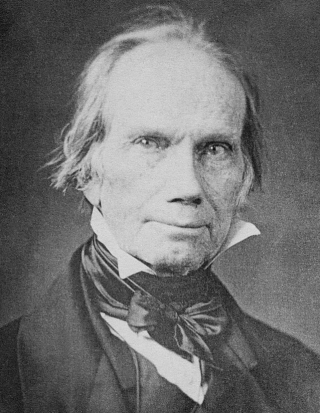
On this date in 1777, American statesman and orator Henry Clay was born in Hanover County, Virginia. Clay was the seventh of nine children born to John and Elizabeth Hudson Clay. After being admitted to the Virginia bar in 1797, Clay moved to Lexington, Kentucky, where he worked as a frontier lawyer. Clay was known for his enjoyment of drinking and gambling and as a horse aficionado. He married Lucretia Hart, the daughter of a wealthy Lexington businessman, in 1799. In their 50 years of marriage, they had 11 children.
Clay began his political ascendance in 1803, when he was elected to the Kentucky General Assembly. As a “Jeffersonian” politician, he began his career as an avid states’ rights advocate. Clay represented former Vice President Aaron Burr in 1806 after Burr was accused, and later found guilty, of plotting an expedition into Spanish Territory to create a new empire.
That same year, at age 29, Clay was appointed to the U.S. Senate. He was elected to the U.S. House of Representatives in 1811, where he eventually served as speaker. Clay went on to serve multiple terms in both the House and Senate, later serving as President John Quincy Adams’ secretary of state in the 1820s.
Clay earned a reputation as a war hawk when he became one of the primary instigators for the War of 1812 against Britain. However, he was subsequently dubbed “The Great Pacifier” for his role in making amends with Britain after the war. He was selected as one of the five delegates to negotiate a peace treaty at Ghent, Belgium. Although he failed in his two presidential runs for the Whig Party in 1832 and 1844, Clay remained involved with politics until his final days.
His father was a Baptist preacher but Clay belonged to no church until 1847, when he was baptized as an Episcopalian. Although a theist he was a strong advocate for separation of state and church. D. 1852.
"All religions united with government are more or less inimical to liberty. All, separated from government, are compatible with liberty."
— 1818 speech, "The Life and Speeches of the Hon. Henry Clay, Vol. I," ed. Daniel Mallory (1857)
Dana Nessel
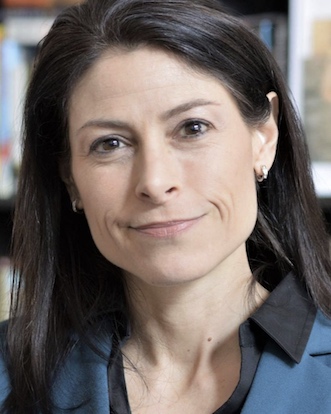
On this date in 1969, Dana Michelle Nessel — attorney and LGBTQ+ advocate — was born to Sandra and Martin Nessel in the Detroit suburb of West Bloomfield, Michigan. Her impoverished immigrant Jewish grandparents fled Europe to escape the Holocaust.
A Democrat who calls the late Justice Ruth Bader Ginsburg “pretty inspirational,” she is the first openly gay woman elected to statewide office and the first Jewish person elected attorney general in Michigan. She rose to further prominence by winning over 20 convictions of Catholic clergy indicted by a statewide grand jury in a probe that launched in 2018 and resulted in hundreds of tips.
Her advice to abuse victims to be forthcoming with law enforcement and resist nondisclosure agreements with the church angered Catholic leaders like Bill Donohue and other theocrats: “If an investigator comes to your door and asks to speak with you, please ask to see their badge and not their rosary.” (Detroit News, Feb. 21, 2019)
Nessel also got a lot of coverage and a little heat for an ad during her first campaign in which she said voters should trust her to take sexual harassment seriously: “When you’re choosing Michigan’s next attorney general, ask yourself this: Who can you trust most not to show you their penis in a professional setting? Is it the candidate who doesn’t have a penis? I’d say so.” (Jewish Telegraphic Agency, Nov. 5, 2022)
After playing high school soccer and being named all-state, Nessel earned a B.A. in political science from the University of Michigan and a J.D. from Wayne State University Law School in 1994. She performed stand-up comedy for several years in college. After law school, she worked as an assistant prosecutor in Wayne County for 11 years before opening her own firm in 2005.
Nessel left the prosecutor’s office because she pregnant with what she thought were twin boys and needed more income. The pregnancy ended her relationship and introduced her to the inequities in Michigan’s family law; there was no way for two women to be legal parents. “I assumed there was some paperwork you could draft or something, but there was absolutely nothing we could do. My girlfriend said she was not going to feel comfortable raising children that would never legally be hers. I was bitter that Michigan had turned me into a single parent unnecessarily.” (Hour Detroit, June 24, 2020)
She soon learned she was actually carrying triplets and that they weren’t growing. “I was told by my doctor that really the only chance of me being able to carry these babies to the point of viability would be if I aborted one of them. It would give the other two at least a chance of survival.” (Fox 2 Detroit, April 7, 2022) She had the abortion and sons Alex and Zach were born prematurely at 3 pounds each and have thrived. She married Alanna Maguire, who was raised Catholic, in July 2015. They met while working on DeBoer v. Snyder.
She and other attorneys had successfully argued for the plaintiffs in DeBoer v. Snyder, which was filed in 2012 and challenged Michigan’s ban on legal recognition of same-sex marriage. The case was eventually combined with others and appealed to the U.S. Supreme Court in Obergefell v. Hodges, which led to nationwide legal recognition. In 2016 she founded Fair Michigan to make attacks on the LGBTQ+ community prosecutable as hate crimes. As attorney general, Nessel launched a hate crimes unit and established an elder abuse task force. Her margin of election in 2018 was 2.7%. She increased that to 8.6% in 2022.
In 2019 she withdrew the state from eight lawsuits in which her Republican predecessor Bill Schuette had filed amicus briefs asserting the conservative positions on reproductive rights, state-church separation and discrimination based on gender. Three cases involved FFRF: One challenged the presence of a Latin cross on the Lehigh County seal and flag in Pennsylvania; another in Wisconsin challenged allowing income tax exemptions for religious clergy but not for FFRF officers; and a third contested the U.S. House chaplain’s refusal to let FFRF Co-President Dan Barker deliver an invocation on the House floor.
Nessel traces her values back to the Reform Judaism she was exposed to while growing up at Temple Kol Ami. “The values that we learned at my temple had a lot to do with empathy and compassion for all people, caring about people who were different and who had been ostracized in society in a lot of ways, much in the way that the Jewish community historically has.” (Jewish Telegraphic Agency, Nov. 5, 2022)
Attendees at the 2024 Democratic National Convention in Chicago heard her blunt words to the opposition, including the Thomas-Alito wing of the Supreme Court: “You can pry this wedding band from my cold, dead, gay hand. And I’m retaining a lot of water, so good luck with that.” (Washington Post, Aug. 22, 2024)
“As I am a member of more than one minority community, it's led me to be a fervent supporter of separation of church and state.”
— Nessel interview, Kveller online (June 24, 2021)
Edward Gibbon
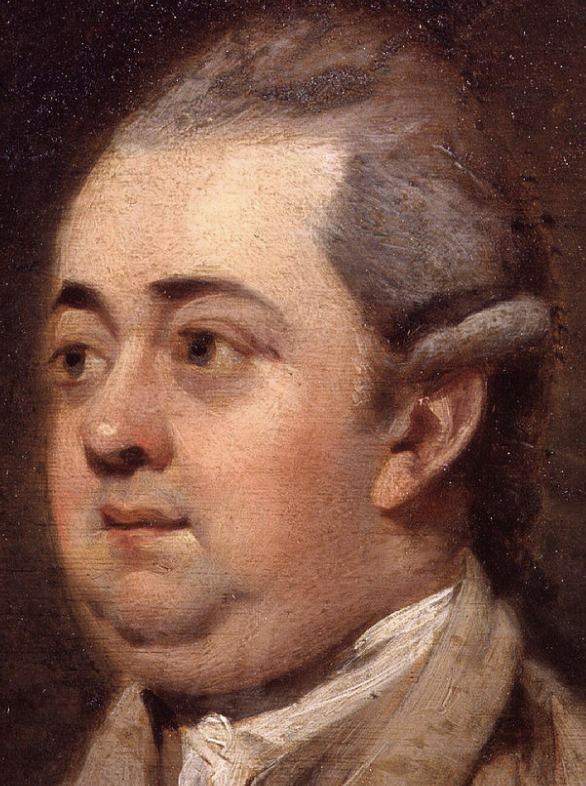
On this date in 1737, Edward Gibbon was born in England. The historian’s most famous work is The Decline and Fall of the Roman Empire, which appeared originally in six volumes from 1776-88. Oxford-educated, Gibbon represented Lymington in Parliament for many years. He was a highly skeptical and unreligious Deist who was particularly critical of the Catholic Church.
In Volume V of The Decline and Fall, commenting on John XII, Gibbon wrote that the 10th century pope “lived in public adultery with the matrons of Rome; that the Lateran palace was turned into a school for prostitution, and that his rapes of virgins and widows had deterred the female pilgrims from visiting the tomb of St. Peter, lest, in the devout act, they should be violated by his successor. The Protestants have dwelt with malicious pleasure on these characters of Antichrist; but to a philosophic eye, the vices of the clergy are far less dangerous than their virtues.”
The “melancholy duty” of the historian, Gibbon wrote, was to discover “the inevitable mixture of error and corruption” of religion.
Volume I of The Decline and Fall contains Gibbon’s explication of early Christianity. He observed, “it was not in this world that the primitive Christians were desirous of making themselves either agreeable or useful.” Gibbon took a pessimistic view over awakening the masses to the falsity of religion, writing in the same book: “A state of scepticism and suspense may amuse a few inquisitive minds. But the practice of superstition is so congenial to the multitude that, if they are forcibly awakened, they still regret the loss of their pleasing vision.”
Gibbon believed that Christianity introduced a new and negative element into religion in damning those who would not accept its teachings. “These rigid sentiments, which had been unknown to the ancient world, appear to have infused a spirit of bitterness into a system of love and harmony. The ties of blood and friendship were frequently torn asunder by the difference of religious faith; and the Christians, who, in this world, found themselves oppressed by the power of the Pagans, were sometimes seduced by resentment and spiritual pride to delight in the prospect of their future triumph.”
Gibbon wrote several other major histories. He died of peritonitis at age 56. (D. 1794)
“The various modes of worship, which prevailed in the Roman world, were all considered by the people, as equally true; by the philosopher, as equally false; and by the magistrate, as equally useful.”
— Gibbon, "The Decline and Fall of the Roman Empire" (Vol. 1, 1776)
Megan Hunt
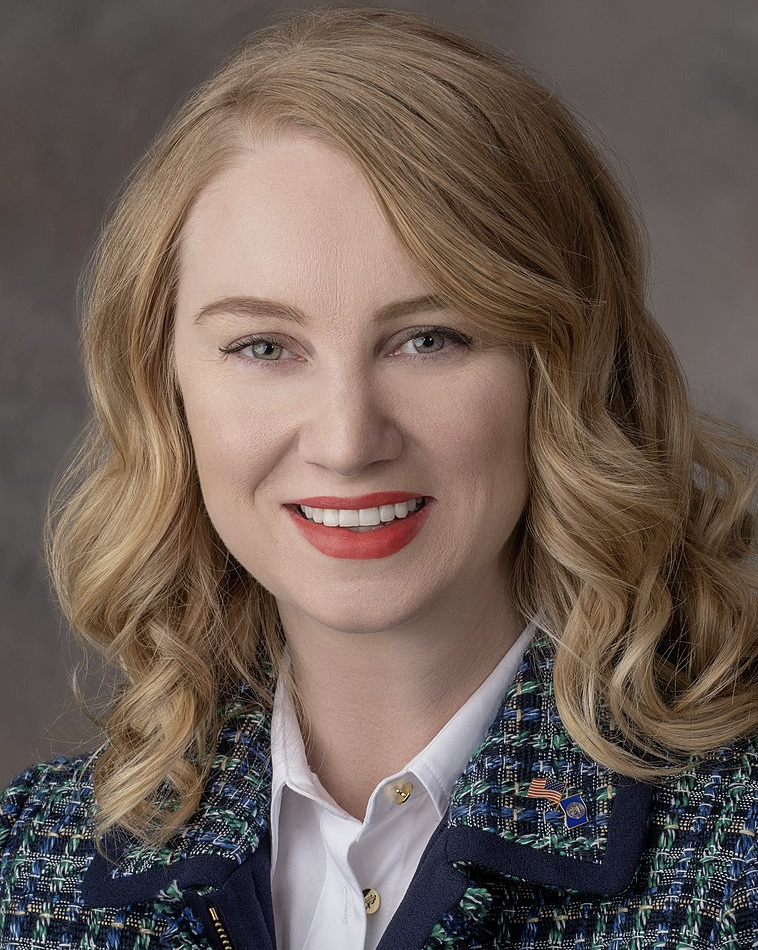
On this date in 1986, political activist and entrepreneur Megan Catherine Hunt was born in Blair, Neb., to Mary Beth (née Arts) and Dan Hunt, respectively a homemaker and president of a telecommunications supply company. Her parents “instilled in her the value of hard work, determination, and the importance of public service.” She was raised Catholic. (meganfornebraska.com)
She started attending Dana College in Blair during her senior year of high school as a Presidential Scholar. After earning a B.A. in intercultural communication and German in 2008, she enrolled in the University of Nebraska-Omaha’s political communication master’s program and coached Blair High School forensics for four years.
Hunt founded Hello Holiday, a boutique and e-commerce company supporting independent fashion designers. It was known for its “Girls Support Girls” messaging and fundraising collaborations with local nonprofits. She decided to run for office after she got involved in a grassroots effort to update the sex education curriculum in Omaha Public Schools in 2015.
She won election in 2018 to Nebraska’s 49-member unicameral legislature with 64% of the vote in an Omaha district. Legislators are called senator, serve without party affiliation or caucuses and make $12,000 plus per diem annually. Senators are limited to two consecutive terms. She was reelected in 2022 by a margin of 69% to 31%. An opponent during the primary season who worked at A Latere Academy, a Christian home-school program, called herself a “Bible-believing Christian” on her campaign site.
Hunt said she broke barriers as the first “out” LGBTQ+ state senator, as a single working parent and as an atheist. “I was really afraid that my colleagues would stereotype me or be hostile toward me because of who I am, but I was wrong. I have found every one of my colleagues amenable, willing to work with me, and I have made several close friends with colleagues who are ideologically very different from me.” (State Innovation Exchange, Jan. 28, 2021)
She describes herself as being on the “far left” of the political spectrum and led a filibuster in April 2022 to defeat a draconian anti-abortion bill. She was among the key opponents of a bill to give full tax credit on donations to private school scholarships, citing the number of religious schools that would benefit, including schools that discriminate against LGBTQ+ youth. “It’s not appropriate for public money, tax dollars, to fund that type of bigotry and discrimination,” Hunt said. (KMTV, Jan. 12, 2022)
In an October 2022 OnlySky interview, she said she’s “a public servant who happens to be an atheist, not a lawmaker who wants to use her platform to promote her personal views.” She wants more emphasis on candidate recruitment and building a pipeline of people who are rational, reasonable and evidence-focused. “Representatives who can actually understand what normal people go through and who aren’t running for office just because they’re motivated by some extremist view or some conspiracy theory, because that’s what we’re seeing more and more nationwide.”
After closing Hello Holiday in 2019, Hunt’s inner entrepreneur kicked in a year later when she, working with her son Ash, started Five Nine, a specialty shop that sells stationery, home goods and practical art built on a belief in the beauty of everyday objects.
She was the recipient in 2022 of an FFRF Champion of the First Amendment award, which she accepted at the national convention in San Antonio. Her mentor, former Sen. Ernie Chambers, received the award in 2006. She publicly called the abortion ban a “church bill” sponsored by Christian religious extremists. “Her impassioned remarks and filibustering were credited with helping to kill the bill. Thanks to her activism, abortion is still legal in Nebraska,” FFRF said.
“I’ve never been a person of faith, so it wasn’t a big deal for me to just be who I am.”
— Hunt, commenting on FFRF's "Ask an Atheist" about making her nonbelief public (May 4, 2022)
Juan Mendez
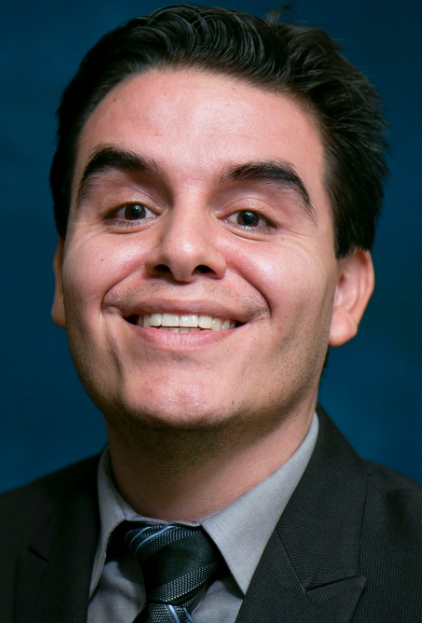
On this date in 1985, community activist and state legislator Juan Mendez was born in Arizona. A first-generation American, he graduated from high school in Tolleson, a Phoenix suburb, and from Arizona State University with a major in political science and minor in justice studies. He then worked as political coordinator for Iron Workers Local 75 and as a program instructor for the Boys and Girls Club of the East Valley. From 2009-13, he ran the nonprofit Arizona Community Voice Mail to help connect the homeless to jobs, housing, information and hope.
Mendez burst into the national consciousness after being elected in 2012 to the Arizona House of Representatives from District 26. The 240 words of his secular invocation to open a House session caused quite a stir on May 21, 2013.
Such a “nonprayer” in a statehouse was unheard of at the time. Mendez also introduced Secular Coalition for Arizona members sitting in the gallery. One member said later she was “witnessing history.” In recognition of Mendez’s courage, FFRF bestowed on him its Emperor Has No Clothes Award, which he accepted at the 2013 national convention in Madison, Wis. After Gov. Jan Brewer signed an executive order in August 2014 to create the Governor’s Office of Faith and Community Partnerships, Mendez joined a group at the Capitol to criticize the office.
He was reelected in November 2014 and became involved in another invocation controversy in 2016. After he had signed up in January to give an invocation, House Majority Leader Steve Montenegro blocked him, saying all invocations had to be made to a “higher power” and even barring moments of silence. Mendez then used his right in February to make personal comments from the floor to offer a secular invocation after the official prayer, saying the state’s diversity includes people of different religions “and lack thereof. We need not tomorrow’s promise of reward to do good deeds today.”
Early in the next month, he offered another, after which Montenegro said that because Mendez didn’t invoke God, a Baptist minister would, calling Mark Mucklow to the podium. “At least let one voice today say ‘Thank you, God bless you,’ ” Mucklow proclaimed at the end of his prayer.
Mendez was elected to the state Senate in 2016, 2018 and 2020. He and his wife, state Rep. Athena Salman, have a daughter, Nausicaa Mendez Salman, born in January 2022. They were both reelected in November 2022.
PHOTO: by Brent Nicastro
“I am an atheist because I've found no faith in any deity from Thor to Zeus. I am so grateful for the work the people in this room have done to advance the separation of state and church, to educate communities, to build a culture that made it possible for me, as a state legislator from Arizona, to talk honestly about what I do and don't believe in.”
— FFRF convention speech, Sept. 27, 2013
José Mujica
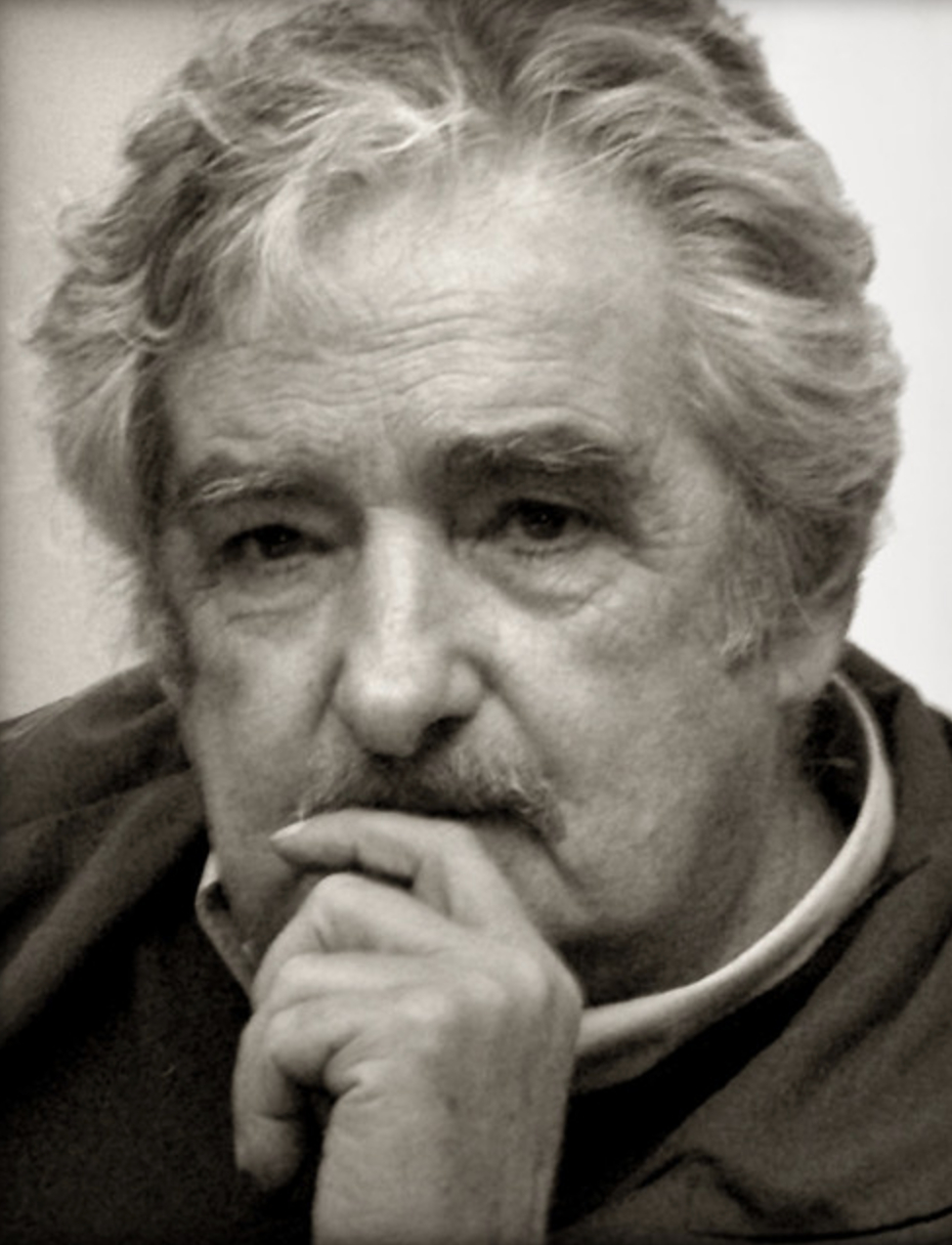
On this date in 1935, José Alberto Mujica Cordano, 40th president of Uruguay, was born in Montevideo. When Mujica was 7, his farmer father went bankrupt and died shortly after. Mujica worked delivering baked goods and as a teen was an avid bicyclist. Politically involved as a youth, he joined the Tupamaros, revolutionaries fighting Uruguay’s brutal dictatorship in the 1960s. He was imprisoned for 14 years, many spent in solitary confinement. He was freed in 1985, as the dictatorship waned, under a general amnesty.
First elected to the Senate in 2000, Mujica served as agriculture minister from 2005-08 before winning the presidential election in 2009 as a member of a coalition of left-wing parties. He led a party known as the Movement of Popular Participation (MPP) that he formed with fellow Tupamaros. During his presidency from 2010-15, the economy prospered and gay marriage, abortion and marijuana were legalized. He was nominated for the Nobel Peace Prize in 2012.
He was often referred to as “the world’s poorest” and “the world’s most humble” president since he donated 90% of his salary to charity, making his income similar to the average wage. Never taking residence in the presidential house, Mujica lived in a one-bedroom house on a small farm on the outskirts of Montevideo with his wife Lucía Topolansky and their three-legged dog Manuela.
He died a week short of his 90th birthday at his farm on the outskirts of Montevideo. The government declared three days of national mourning and an estimated 100,000 people attended his funeral. (D. 2025)
PHOTO by Vince Alongi
"I still have not been able to believe in God."
— El Espectador, Colombian daily newspaper (May 16, 2012)
Daniel Henry Chamberlain
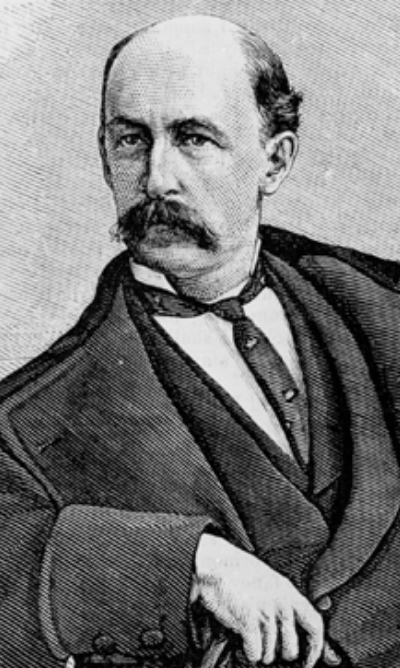
On this date in 1835, Daniel Henry Chamberlain was born in West Brookfield, Mass. He graduated from Yale with honors in 1862 and became a second lieutenant in the U.S. Army. He was elected attorney general of South Carolina (1868-72) and served as governor from 1874-77. Chamberlain was elected during a period of waste and corruption in state government and high taxation, abuses which his administration, regarded by history as honest, temporarily ended. Chamberlain was to be the last Republican to fill a high office in South Carolina until the late 1960s.
The gubernatorial election of 1876 was marked by irregularities on both sides. The votes of two counties had not been counted. Wade Hampton, Chamberlain’s rival and a war hero, claimed victory. Two state governments were in effect for about a year while Chamberlain refused to leave office. When President Rutherford B. Hayes removed all federal troops from the South, Chamberlain left office. Chamberlain was a planter, lawyer, author (writing Charles Sumner and the Treaty of Washington) and professor of constitutional law at Cornell University. His rationalist views were not well-known, but he wrote an article for the North American Review, later reprinted in The Freethinker, describing himself as “a Freethinker.” D. 1907.
Public domain photo: South Carolina Department of Archives and History
"I reject the whole Christian religion [and] a presiding or controlling Deity."
— Chamberlain, North American Review article reprinted in The Freethinker (Nov. 15, 1908)
Giuseppe Garibaldi
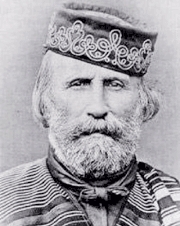
On this date in 1807, Giuseppe Garibaldi was born in Nice, France. Although his father wanted him to be a priest, Garibaldi set out to sea as a youth. He took part in the conspiracy of 1834, for which he was forced to flee from Italy. After adventurous travels, the famed Italian patriot took a major role in work to emancipate Italy from outside rule. After the failed revolution of 1848, he traveled to America. He returned with a band of revolutionaries in 1859, then again in 1862 and 1870. He was elected to the Italian Parliament in 1872. Garibaldi called the Vatican “the Sacred Shop” and rejected all creeds. D. 1882.
"Dear Friends, Man has created God; not God man. Yours ever, Garibaldi."
— Garibaldi letter, 1880. Cited by Joseph McCabe in "A Biographical Dictionary of Modern Rationalists"
Ernie Chambers
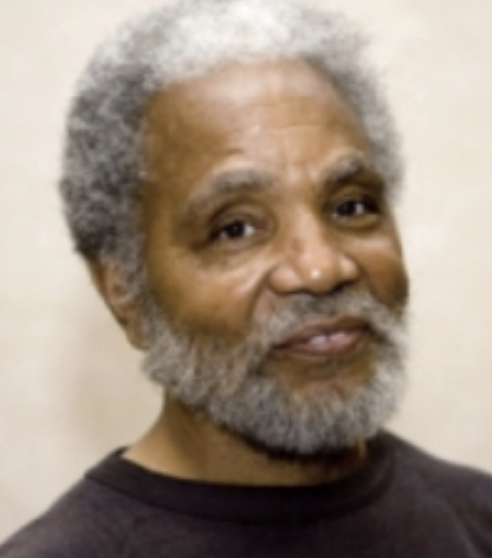
On this date in 1937, politician Ernest Chambers, known as “the Maverick of Omaha” and “defender of the downtrodden,” was born in Omaha, Neb. Chambers understood early on the power of protest and of grassroots organizing, standing up for civil rights as a youth and emerging as a leader of African-American youths in Omaha. He graduated from Creighton University School of Law and was first elected to the unicameral legislature as a state senator in 1970, the only black member of the legislature in an overwhelmingly white, ultraconservative state.
Chambers became known for defending the rights of women, gays and lesbians and people of color. He challenged legislative prayers in the 1983 Supreme Court case Marsh v. Chambers, and although the court ruled against him, Chambers was successful in subsequently persuading the Senate to drop payment for prayers.
Rita Swan of Children’s Healthcare is a Legal Duty (CHILD) said in 2005, “Nebraska is the only state in the country that has never had a religious exemption to child neglect in either the juvenile or criminal codes and that distinction is due to Ernie’s forceful opposition and vigilance. Nebraska is one of four states without a religious exemption to metabolic screening of newborns and that again is because of Ernie’s leadership.” CHILD presented Chambers with its child advocacy service award for successfully arguing that “no parent should have a religious right to deprive a child of necessary health care” and keeping a religious exemption to health care from being enacted in that state.
Chambers cleverly filed a lawsuit in 2007 (Chambers v. God) to make a point about frivolous lawsuits. Chambers, who identifies as nonreligious without using a label, sought a permanent injunction against the defendant for making terroristic threats against him and his constituents, of inspiring fear and causing “widespread death, destruction and terrorization of millions upon millions of the Earth’s inhabitants.” In October 2008 the judge threw out his lawsuit, whimsically ruling that the defendant wasn’t properly served due to his unlisted home address.
Chambers, accepting FFRF’s Hero of the First Amendment Award in 2005, commented, “What I would do, from time to time, is mock, taunt, and ridicule my colleagues for injecting religion and Jesus into the legislature.” His political opponents, in a successful effort to finally unseat him from the Senate when they could not do so electorally, passed a law in 2000 establishing term limits so he was unable to seek reelection in 2008. He was reelected in 2012 and 2016 to four-year terms. In 2015, FFRF awarded Chambers its Emperor Has No Clothes Award.
“As an elected official, I know the difference between theology and politics. My interest is in legislation, not salvation.”
— Chambers, Hero of the First Amendment acceptance speech (Nov. 12, 2005)
Jesse Ventura
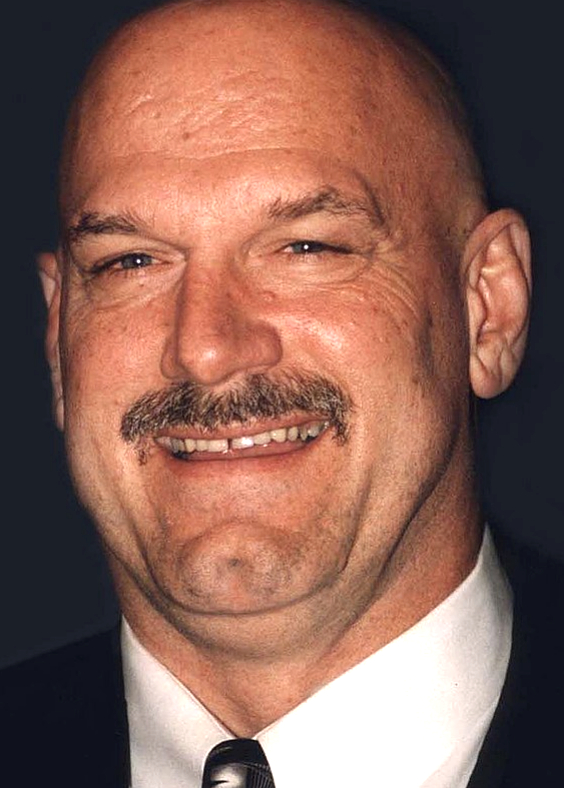
On this date in 1951, James George Janos, later known as Jesse “The Body” Ventura, was born in Minneapolis to George and Bernice Janos. After graduating from high school, he joined the U.S. Navy and served during the Vietnam War. He attended North Hennepin Community College in Minneapolis but dropped out after one year and spent the next several years in various places and jobs. He was briefly a bodyguard for the Rolling Stones. Janos developed a rigorous workout routine and started wrestling professionally in the mid-1970s, changing his name to the one that made him famous.
Playing a loud, aggressive villain became Ventura’s trademark as a wrestler for the World Wrestling Federation. He continued wrestling until 1984, when emergency hospitalization due to blood clots in his lungs made him miss a title match against Hulk Hogan and ended his career. He spent the next five years as a wrestling commentator and acted in a handful of films, including several Arnold Schwarzenegger movies: “Predator” (1987), “The Running Man” (1987) and “Batman & Robin” (1997).
In 1990 Ventura ran against and defeated the 18-year incumbent mayor of Brooklyn Park, Minn., serving until 1995. He campaigned for governor as a third-party candidate and was one of the pioneering politicians who reached out to new voters via the internet. He was elected as governor in 1998 and proved to be a progressive politician, strongly backing gay rights, abortion rights, funding for higher education, mass transit, property tax reform and opening trade relations with Cuba. Deciding not to run for reelection because he wanted his family to regain their privacy, Ventura and his family (including wife Terry, whom he married in 1975) moved to Mexico.
He was the recipient in 1999 of FFRF’s Emperor Has No Clothes Award for his “plain speaking” on religion and, as governor, for rejecting proposals to entangle state and church, including refusing to proclaim a state “Day of Prayer.”
He said at the time, “I believe in the separation of church and state. We all have our own religious beliefs. There are people out there who are atheists, who don’t believe at all. They are all citizens of Minnesota and I have to respect that.” (Minnesota Independent, April 20, 2010) He also vetoed a bill that would have required students to recite the Pledge of Allegiance in public schools.
PHOTO: Ventura in 1996; Kingkongphoto & www.celebrity-photos.com under CC 2.0.
“Organized religion is a sham and a crutch for weak-minded people who need strength in numbers.”
— Ventura, Playboy magazine, November 1999
David Miliband
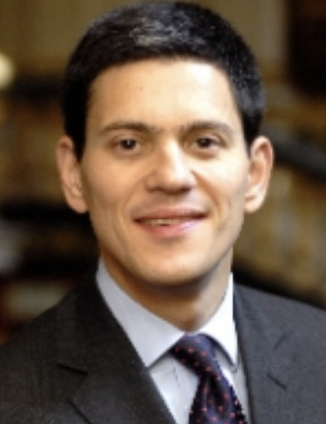
On this date in 1965, David Wright Miliband was born in London. Ralph Miliband, his father, was a great Marxist scholar from Belgium and his mother was a feminist and human rights activist from Poland. Miliband’s parents were Jewish and settled in England after escaping the Holocaust. Miliband graduated with first-class honors from Corpus Christi College at Oxford University with a degree in philosophy, politics and economics.
As a Kennedy Scholar at the Massachusetts Institute of Technology, he earned a master’s degree in political science in 1989. Miliband then worked at a British think tank, the Institute for Public Policy Research, as a research fellow and policy analyst until 1994.
Miliband was appointed as Tony Blair’s Head of Policy in 1994, and three years later Blair appointed him the de facto Head of the Prime Minister’s Policy Unit, a post he held until the 2001 election. Miliband was elected to Parliament for South Shields in 2001. Miliband served as Schools Minister in 2002, Cabinet Office Minister in 2004, Minister of State for Communities and Local Government in 2005, Secretary of State for Environment, Food and Rural Affairs in 2006.
New Prime Minister Gordon Brown appointed Miliband Foreign Secretary in 2007. David Miliband gained the most nominations for his bid in 2010 for Labour Party Leader, a race that included his younger brother Ed Miliband, to whom he ultimately lost by a narrow margin. Since his unsuccessful campaign, Miliband has continued serving as a Member of Parliament for South Shields and became a senior global advisor for Oxford Analytica.
Miliband is married to American-born violinist Louise Shackelton, with whom he has adopted two sons.
"My parents and grandparents — all of them Jews — went through huge trauma. They went through the trauma of the Holocaust. I don’t know if it’s for that reason that, by 1965, when I was born, my grandparents, who were alive, my parents were secular. But I’ve grown up in a secular way. I’ve thought about this, and I’m an atheist."
— Miliband interview with CNN's Fareed Zakaria (July 5, 2009)
José Manuel Balmaceda
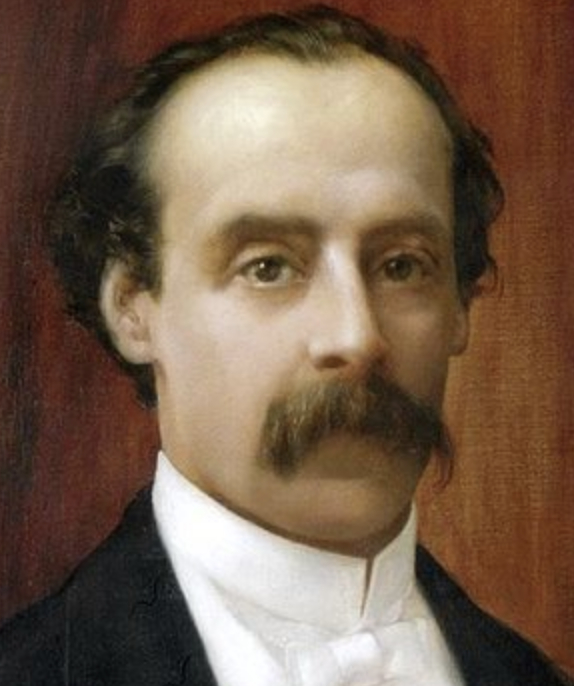
On this date in 1840, José Manuel Emiliano Balmaceda Fernández, 11th president of the Republic of Chile, was born to wealthy parents in Bucalemu, the eldest of 12 children. He attended the School of the French Friars and considered joining the clergy during studies at the Santiago Seminary. In 1864 he became secretary to President Manuel Francisco Montt. He married Emilia de Toro Herrera in 1865. They had eight children, six of whom survived to adulthood.
In 1868 he co-founded the newspaper La Libertad, contributed to Revista de Santiago and published two monographs: “The political solution in electoral freedom” and “Church and State.” In 1869 he joined the Club de la Reforma, which became the political basis of the Liberal Party and whose members generally held anti-clerical views.
He was elected to the Chilean congress in the 1870s and in 1882, as minister of the interior during the presidency of Domingo Santa María, Balmaceda used his powers to enforce new civil marriage and divorce laws and other measures opposed by the Catholic Church. He served as president from 1886-91. Conservatives opposed many of Balmaceda’s policies and a constitutional crisis ensued over his ability to appoint Cabinet members of his choosing. Congress refused to fund the government. Civil war broke out after he illegally decreed that the 1890 budget would carry over into the next year.
By now he had lost any support he may have had from landowners and clergy. After his forces were defeated at the Battle of La Placilla and the rebel army approached Santiago, he took refuge in the Argentine legation, where he shot and killed himself at age 51. It was one day after the anniversary of his elevation to the presidency and the day when the term for which he had been elected president ended. (D. 1891)
“Clerical influence also turned against him as a result of his radically secular ideas about government.”
— Encyclopaedia Britannica, ed. Hugh Chisholm (1911)
Granville Stuart
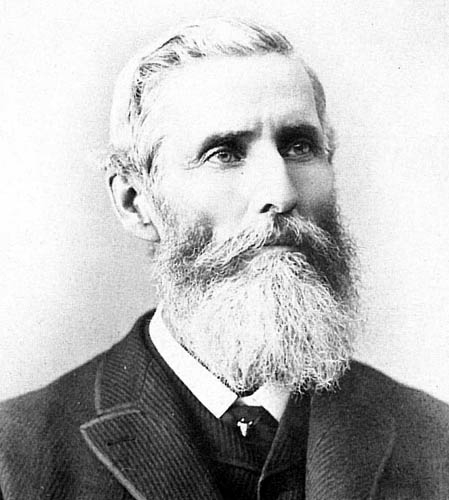
On this date in 1834, Granville Stuart was born in Clarksburg, W.Va. (then part of Virginia). He settled in Montana in the 1850s and soon became a prospector, miner, banker and cattle rancher. He was manager of the Pioneer Cattle Company from 1879-88, president of the Stock Growers Association and Board of Stock Commissioners and president of the Montana Historical Society from 1890-95.
He married Awbonnie Tookanka, who was Shoshone. They had five daughters: Katie, Elizabeth, Mary, Emma and Irene, and six sons: Tom, James, Granville, Samuel, Charles and Robert (who was adopted). Awbonnie died in 1888. Stuart married Allis Belle Brown in 1890.
Stuart represented Lewis and Clark County in the territorial House of Representatives for four years and was president of the Territorial Council in 1883. He served as U.S. ambassador to Uruguay and Paraguay from 1894-98. After returning to Montana, Stuart wrote books, including Montana As It Is (1865) and Forty Years on the Frontier (1925).
Stuart became a strong freethinker as an adult, according to As Big as the West: The Pioneer Life of Granville Stuart by Clyde Milner II and Carol O’Connor (2008). James Fergus, fellow freethinker and Montana pioneer, called Stuart “a fine writer and most radical outspoken infidel, and has pictures of Ingersoll, Bennett and Payne [sic, Paine] hanging in their Parlor.” (Jan. 1, 1883 letter) In a letter to Fergus (July 21, 1879), Stuart requested that his funeral be completely secular. (D. 1918)
“Don’t you know that mankind is an Ass pure & simple & for all the use they make of their brains in matters of religion they [may] as well have none.”
— Stuart to a friend, quoted in "As Big As the West: The Pioneer Life" (2008)
Keir Starmer

On this date in 1962, Keir Rodney Starmer, the first openly atheist British prime minister in history, was born in London to working-class parents, Josephine (Baker) a nurse, and Rodney Starmer, a toolmaker for injecting plastics.
Starmer was politically active as a youth growing up in a small town in Surrey and joined the Labour Party Young Socialists at age 16. He earned undergraduate and graduate law degrees from the University of Leeds and the University of Oxford in 1985-86. His graduation ceremony was “the only time my dad had put a suit on,” he told British Vogue. (July 5, 2024)
After appointment to the bar as a barrister in 1987, he had several high-profile cases, including as part of the defense team for two environmental activists being sued for libel by the McDonald’s Corp. The case dragged on for over 10 years. Starmer advised them pro bono and did the same for numerous death row prisoners in Africa and the Caribbean. He won several awards, including human rights lawyer of the year from one legal advocacy group.
In 2008 he was named to head the Crown Prosecution Service, the main public agency for conducting criminal prosecutions in England and Wales, and instituted reforms to bring a focus on human rights into the system. He served until 2013 and was elected to the House of Commons as a Member of Parliament (MP) in 2015 as a Labour candidate after achieving knighthood in 2014.
Starmer voted against leaving the European Union in 2016. He was reelected in 2017 and 2019 and was elected in 2020 to lead the Labour Party, succeeding Jeremy Corbyn. He led Labour four years later in July 2024 to a landslide victory ending 14 years of Tory governments and became prime minister. His full title became the Right Honourable Sir Keir Rodney Starmer.
He had declined a religious oath of office when he was sworn into Parliament, instead making a “solemn affirmation” to “truly declare and affirm that I will be faithful and bear true allegiance to His Majesty King Charles, his heirs and successors according to law.” Compare that to senior MP Liz Truss, who held a bible and said, “I swear by Almighty God that I will be faithful and bear true allegiance to His Majesty King Charles, his heirs and successors, according to law, so help me God.” (The Telegraph, Sept. 10, 2022)
He married Victoria Alexander, a legal solicitor a decade younger than him, in 2007. Her mother converted to Judaism to marry her father, an observant Jew. The Starmers have a son born in 2008 and a daughter born in 2010. They are being raised in their mother’s Jewish heritage, their father said: “My wife in particular wants our children to know the faith of her family.” (The Jewish Chronicle, Nov. 16, 2020)
PHOTO: Starmer’s official portrait as prime minister in 2024; photo by Simon Dawson under Open Government Licence v3.0.
"I am not of faith, I don't believe in God, but I can see the power of faith and the way it brings people together."
— The Sunday Times Magazine (April 11, 2021)
Periyar
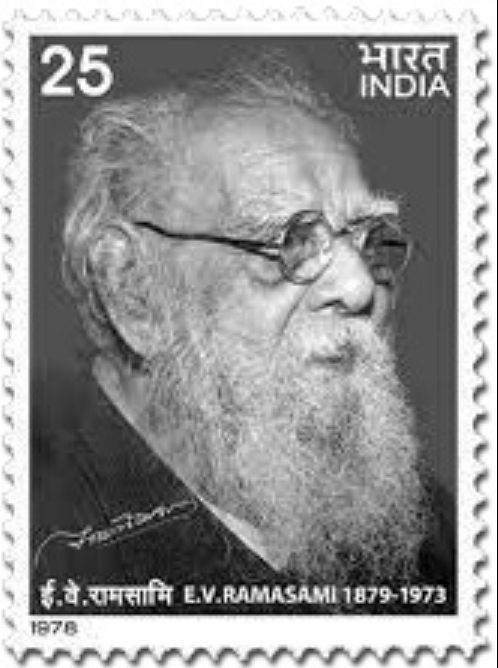
On this date in 1879, Indian rationalist and social reformer Periyar (“respected one” or “elder” in Tamil), né Erode Venkata Ramasamy, was born in Erode, now part of Tamil Nadu, India. He was raised in a religious family with an older brother and two sisters. His father was an affluent businessman, and Periyar left school after five years and joined the business at age 12. When he was 19, his father set up a marriage with Nagammai. The couple had one child who died during infancy. Nagammai steadfastly supported Periyar’s social and political actions.
In 1919, Periyar joined the Indian National Congress party and was eventually elected president of the Madras Presidency Congress Committee before leaving in 1925 when he learned the party was dominated by individuals from the Brahmin priestly caste who were indifferent or hostile toward his fight for equal rights. He later headed the Justice Party, which was dedicated to social and economic equity.
Periyar propagated rationalism over Hinduism, which he began to question from a young age and believed to be a major contributor to inequality in his state. He spoke out against Brahmin oppression and was a renowned advocate of caste emancipation and women’s rights. According to Periyar, self-willed reason is the only factor necessary for freeing oneself from the enslavement of religion.
He once stated, “Men today do not have self-confidence. They do not think that [it is] they who conduct [their affairs] on their own. They have made a muddle of God, God’s dictates, God’s philosophy, all of which were invented by man himself.” His Self-Respect Movement, aimed at generating pride among lower caste members, drove this point home further. He started his own political organization, Dravidar Kazhagam, to promote rationalism and social justice and against invidious religious practices.
After Nagammai’s death in 1933, he married Maniammai, who continued his social work, leading the Dravidar Kazhagam after his death. (As of this writing in 2023, it is headed by Krishnasami Veeramani.) Periyar is recognized as the “Father of modern Tamil Nadu” and has an iconic status in the state. Both major political parties in Tamil Nadu have been spawned from his political movement Dravidar Kazhagam. (D. 1973)
"He who created God is a fool, he who propagates God is a scoundrel, and he who worships God is a barbarian."
— Periyar slogan he repeated and popularized throughout his political career
Charles Bradlaugh
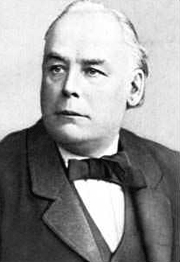
On this date in 1833, England’s best-known proponent of atheism, reformer Charles Bradlaugh, was born in London. He left school at age 11 to earn his living. When he announced his freethought views, he was forced to leave his family home and found support among other freethinkers, including the children of oft-jailed publisher Richard Carlile. Bradlaugh worked as a coal merchant. After joining the army, he worked as a solicitor’s clerk, learned the law and became an attorney.
He wrote and lectured about freethought under the pseudonym “Iconoclast.” Bradlaugh briefly became editor of the freethinking bi-weekly periodical The Investigator in 1858. By the time he became co-editor of the National Reformer in 1860, he was a famed social reformer and orator, known in England and abroad. In 1866 he founded the National Secular Society. Bradlaugh had two daughters and one son with his wife, whose serious drinking problem broke up the family in 1870.
Bradlaugh’s challenge in 1868-69 of the Security Laws, inhibiting distribution of controversial periodicals, brought their repeal. He also championed land reform. In 1876, he and colleague Annie Besant were prosecuted for “obscenity” for republishing a birth control booklet, The Fruits of Philosophy, by American doctor Charles Knowlton. After a long trial, the pair were convicted and faced jail and fines but were freed on a technicality. Bradlaugh was urged to run for Parliament in 1868, placing fifth. He ran several times before winning in 1880 but was refused seating because he would not take the religious oath.
Bradlaugh was reelected four times before finally prevailing in his fight to be seated in 1886, but the legal fight had drained him financially. Bradlaugh persuaded Parliament to pass a bill permitting the right to affirm in 1888. Bradlaugh lectured three times in the U.S. in the 1870s and was warmly received in India during his 1889 visit. His only surviving child, Hypatia Bradlaugh Bonner, took up the freethought/reform cudgels, also defending her father’s reputation from numerous “death-bed conversion” fables. D. 1891.
"I maintain that thoughtful Atheism affords greater possibility for human happiness than any system yet based on, or possible to be founded on, Theism, and that the lives of true Atheists must be more virtuous — because more human — than those of the believers in Deity, the humanity of the devout believer often finding itself neutralized by a faith with which that humanity is necessarily in constant collision.”
— Bradlaugh, "A Plea for Atheism" (1929)
Michelle Bachelet
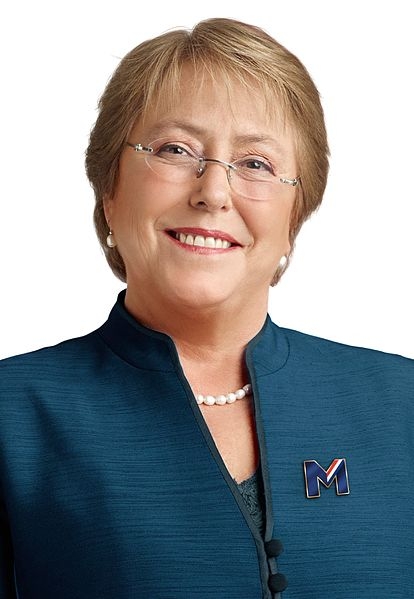
On this date in 1951, Michelle Bachelet was born in Santiago, Chile, to an archaeologist mother and father who was a general in the air force. She attended the University of Chile for an education in medicine, and during Salvadore Allende’s government, she participated in the Socialist Youth movement. General Pinochet, supported by the U.S. Central Intelligence Agency, led a coup in 1973 against the democratically elected Allende government, for which Bachelet’s father worked.
Bachelet watched the bombing of La Moneda Palace from the roof of her medical campus and later that day learned that her father had been arrested for treason. He died in prison a year later as a result of torture. She began hiding people wanted by Augusto Pinochet’s right-wing regime. In 1975 Pinochet’s secret police arrested Bachelet and her mother and exiled them to Australia after harsh interrogations. Eventually moving to East Germany, Bachelet attended medical school in Berlin and married an architect and fellow Chilean exile. They had two children together.
Bachelet returned to Chile in 1979 with her family and worked as a physician while becoming politically active when democracy was restored in 1990. In 2002 she was named to head the Defense Ministry, making her the first woman in Latin America to hold such a position. She served presidential terms from 2006-10 and from 2014-18, the first woman in Chile to occupy the position. In August 2018 the United Nations nominated her to become the next High Commissioner for Human Rights.
Bachelet endured much criticism for her open agnosticism and secular reforms such as making the morning-after pill free at state-run hospitals, an act which infuriated the Catholic Church. As reported in the Washington Post, Bachelet said, “I’m agnostic. … I believe in the state.” (“Female, Agnostic and the Next Presidente?” Dec. 10, 2005.)
Photo by Comando Michelle Bachelet at Descarga y Actua under Attribution-ShareAlike 3.0 Chile.
"I was a woman, a divorcee, a socialist, an agnostic … all possible sins together."
— Bachelet, on why she was an unlikely contender for president of a strongly Catholic country, USA Today (Jan. 15, 2009)
Carl Brandes
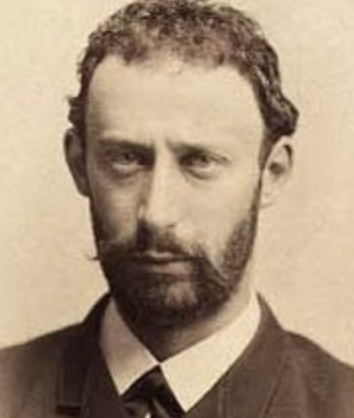
On this date in 1847, Danish writer and politician Carl Edvard Cohen Brandes was born in Copenhagen. He received a Ph.D. from Copenhagen University in Oriental languages and edited several radical political publications. His novels and plays propounded rationalist and progressive ideals.
Brandes notably refused as a freethinker to take the oath when elected to the Folketing (the unicameral parliament) in 1880. Despite attempts to unseat him, he won the right to affirm. Even with his openly atheist views, he was appointed minister to France. His brothers, Georg and Ernst, were also freethinkers. (D. 1931)
“He published translations from Sanskrit and also Danish versions of Isaiah (1902), Psalms (1905), Job, and Ecclesiastes (1907). However, he openly professed atheism and had no connection with Jewish affairs.”
— Encyclopedia Judaica entry on Brandes (1971)
Alfred Naquet
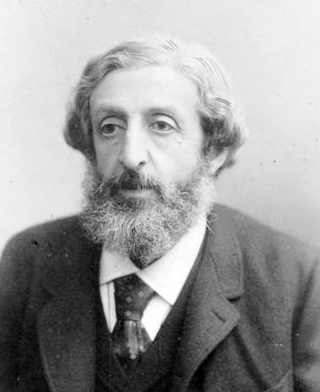
On this date in 1834, physician and politician Alfred Joseph Naquet was born in France. After obtaining a medical degree, he studied chemistry and was a professor of chemistry at Palermo from 1863 to 1866. He was sentenced to 15 months in prison upon his return to Paris when he propounded radical Garibaldian views. After Naquet’s book Religion, Propriete, Famille (Religion, Property, Family) was published in 1869, he was returned to prison for four months and fined 500 francs.
Naquet sought refuge in Spain but after the Revolution of 1870 returned to France. He served in the Chambre from 1871-82, championing the cause of divorce reform (divorce had been abolished in France in 1816). He ultimately saw passage of his bill for a rational divorce law as a senator, the achievement for which he is largely remembered. (D. 1915)
James Fergus
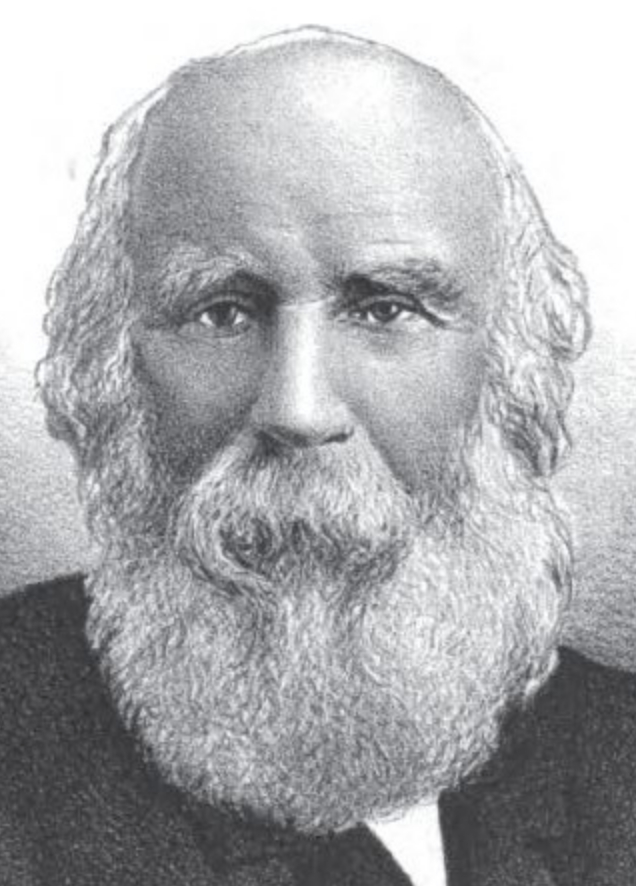
On this date in 1813, James Fergus was born in Lanarkshire, Scotland. He became a U.S. citizen in 1839 and in 1862 he settled in what would become Montana. He became an influential politician, cattle rancher, miner and judge. Fergus began questioning his family’s Presbyterian religion as a child and his “freethinking agnosticism” grew stronger after he left Scotland at age 20. “I am better known for my unbelief than any man in the territory, except [fellow Montana pioneer] Granville Stuart,” Fergus wrote in an 1883 letter.
His freethought views were so strong that when a Christian relative offered him a large sum of money if Fergus would tell him that there could be a God, Fergus refused. Although he needed the money, he replied to his relative, “I have come to the conclusion that there is not enough money in Scotland to make me tell a lie.”
He held several political positions and founded Fergus County. His wife, Pamelia Dillin, whom Fergus married in 1845, was also a freethinker. They had four children: Mary Agnes, Francis Luella, Andrew and Lillie.
Fergus actively supported the separation of state and church. During his time as a Territorial Council member, he opposed using taxes to fund a chaplain for council meetings and in 1884 he opposed including God in the Montana Constitution. He wrote an editorial in 1888 for the Fort Benton Record vigorously opposing converting Native Americans to Christianity.
Fergus is quoted as saying in 1883, “The Christian religion brought about a long period of ignorance still known to us as the Dark Ages, during which thought was curbed, common education banished, and conscience given over to a rude, vulgar and ignorant priesthood. And whatever good Christianity may have done since, much of the degeneracy of mankind during this period must be laid at its door.” (All quotations from the Fergus County History and Genealogy website.) D. 1902
"Religion is declining, with no better proof than I am here today. Two hundred years ago, I would have been burned at the stake. What was considered heresay [sic] by our fathers is tolerated now. The hell that frightened us in childhood has vanished into space. Heaven is not in our geographies. Therefore, we see the old faiths losing their hold on the human mind."
— Fergus, Society of Montana Pioneers speech, 1885 (quoted in the Lewistown News-Argus, 1994)
Culbert Olson
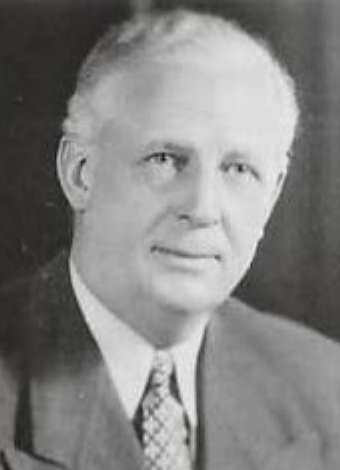
On this date in 1876, Culbert Levy Olson, future California governor, was born in Fillmore, Utah. His parents were Mormon but Olson left the church as a teen “after deciding that Joseph Smith was an imposter and that his revelations didn’t make any rational sense,” according to his granddaughter Debra Deane Olson. He came to atheism after listening to lectures by Robert Green Ingersoll.
He attended Brigham Young University in Provo, graduating at age 19, then became associate city editor of the Daily Ogden Standard before moving to Washington, D.C., where he did secretarial work for congressional members. After returning to school to get his law degree, he put out his shingle in 1901 in Salt Lake City, where he met and married Kate Jeremy. They had three children.
In 1916 he was elected to the Utah State Senate. After serving four years, he moved to Los Angeles to practice law. He campaigned in 1924 for Robert M. La Follette, the Progressive Party presidential candidate. California. He was elected to the California Senate in 1934 and in 1938 became the state’s first Democratic governor since 1896.
At his inauguration he put his left hand in his pocket instead of on a bible while swearing his oath of office. “I just told the member of the Supreme Court who came to swear me in as governor that there was no use to ask me to say ‘So help me God’ because God couldn’t help me at all, and that there isn’t any such person, and I will have to just say, ‘I will affirm.’ ”
After his term as governor (he lost a reelection bid), he campaigned against the proposal to make “In God We Trust” the official motto of California. “Such a motto is untrue,” he said. “We don’t trust in God. … The harm is that it is a violation of the First Amendment to the Constitution.”
An activist with the United Secularists of America, he became the president of the organization in 1957 and remained president until his death on April 13, 1962. In 1959 the Commonwealth Club of California cancelled a speech Olson was scheduled to give on the subject of separation of church and state. In that prepared speech Olson wrote, “No god has ever shown himself. The thousands of gods that man has worshipped are myths born of his fears and his imaginations.”
Debra Deane Olson and Dr. Craig Wilkinson spoke about Governor Olson at FFRF’s 2018 national convention in San Francisco while receiving a Courage to Tell the Truth Award in his honor. Their speech is here. (D. 1962)
"The emancipation of the mind from religious superstition is as essential to the progress of civilization as is emancipation from physical slavery."
— Olson, in 1961 at age 84 after being asked if religion promoted social progress.
Robert Dale Owen
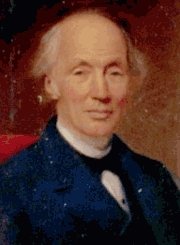
On this date in 1801, Robert Dale Owen, oldest son of Robert Owen, was born at New Lanark, Scotland, his reformer father’s settlement. When his father bought a town in Indiana for $30,000 to experiment with a model community, Robert accompanied him to New Harmony, where he edited the New Harmony Gazette, with strong freethought overtones. Although the community failed within three years, it became known as a center for advances in education and scientific research. Residents established the first free library, a civic drama club and a public school system open to men and women.
After his father returned to Great Britain, Owen became a naturalized U.S. citizen. He worked with Frances Wright on many reforms and enterprises, including abolition, women’s rights, pacifism, editing The Free Enquirer and helping found the Working Men’s Party. In 1835 Owen was elected to the Indiana Legislature and in 1843-47 served in the U.S. House of Representatives, where he played a key role in promoting public education, in part by supporting the founding of the Smithsonian Institution.
Owen represented the U.S. as a diplomat in Naples for several years. On Sept. 17, 1862, he wrote President Lincoln to urge him to use his power to end slavery. Five days later, Lincoln issued the Emancipation Proclamation. To the concern of fellow freethinkers, Owen toyed with the spiritualism movement but was eventually disillusioned by it. His books include several on abolitionism and his autobiography Threading My Way (1874).
He married Mary Jane Robinson before a justice of the peace In New York City in 1832. After an extended trip to Europe, they relocated to New Harmony and had six children. His wife died in 1871 and he married Lottie Walton Kellogg in 1876, a year before he died at age 75 in Lake George, N.Y. (D. 1877)
“For a century and a half, then, after Jesus’ death, we have no means whatever of substantiating even the existence of the Gospels, as now bound up in the New Testament. There is a perfect blank of 140 years; and a most serious one it is.”
— "Discussion on the Existence of God, and the Authenticity of the Bible" by Robert Dale Owen and Origen Bacheler (1833)
Pete Stark
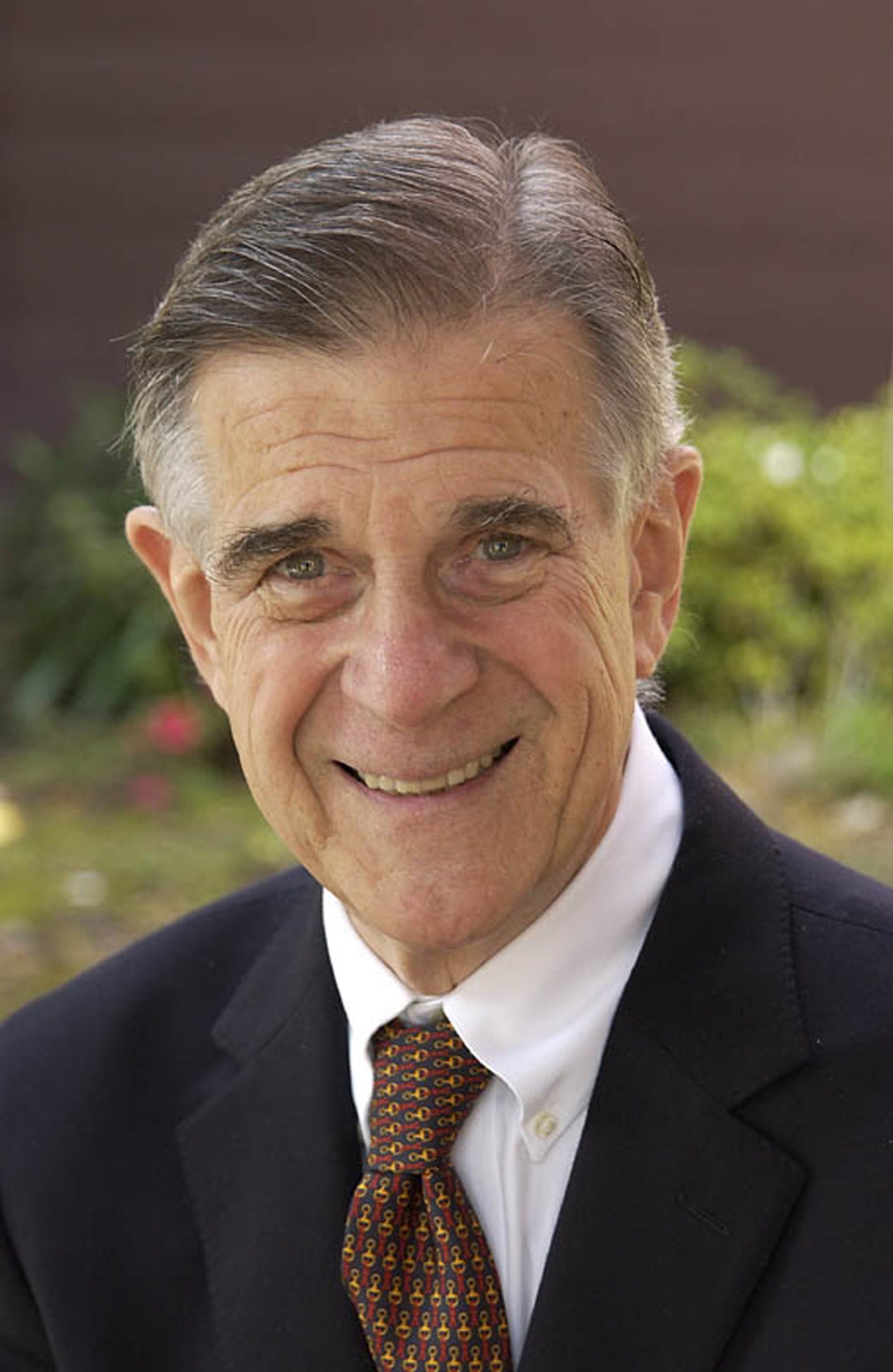
On this date in 1931, Fortney Hillman “Pete” Stark Jr. was born in Milwaukee, Wis. He graduated from the Massachusetts Institute of Technology with a degree in engineering (1953), and served in the U.S. Air Force from 1955-57. In 1960 he earned a master’s in business administration from the University of California-Berkeley. In 1963 he founded Security National Bank (Walnut Creek, Calif.), which grew into a $1 billion financial institution.
Stark served in Congress from 1973 to 2013 representing the 13th Congressional District, a diverse area covering the east side of the San Francisco Bay, stretching from Alameda to Fremont. Stark received less than 60% of the vote only twice since his first election. He served on the House Banking and Currency Committee in his first term in Congress and as a senior member of the Ways and Means Committee.
Stark for years was the only open nonbeliever in Congress. In 2007, members of Congress received a survey about their religious belief and Stark answered “that I didn’t believe in a supreme being. Within a week, I had 5,000 responses from around the world, almost all of them favorable.” (Stark, accepting FFRF’s 2010 Emperor Has No Clothes Award via a videotaped message.)
Stark issued a statement about his nonbelief on March 12, 2007: “Like our nation’s founders, I strongly support the separation of church and state. I look forward to working with the Secular Coalition to stop the promotion of narrow religious beliefs in science, marriage contracts, the military and the provision of social services.”
He received the 2007 Harvard Humanist of the Year award. In 2008 he was honored as Humanist of the Year by the American Humanist Association. In 2011 he introduced a House bill “Expressing support for designation of Feb. 12, 2011, as Darwin Day and recognizing the importance of science in the betterment of humanity.”
He and Deborah Roderick Stark had seven children. He died of leukemia at age 88 at home in Harwood, Maryland. (D. 2020)
PHOTO: Stark in 2002; public domain photo.
“Thankfully, we’re moving in a direction where some feel it’s not an act of courage simply to state that you don’t believe in God. … We must continue to speak out, be honest about our beliefs.”
— Stark, acceptance speech for the 2010 Emperor Has No Clothes Award
J.M. Robertson
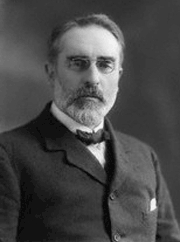
On this date in 1856, John Mackinnon Robertson was born on the Isle of Arran, Scotland. He left school at 13, joined the staff of the Edinburgh Evening News in 1878 and several years later moved to London so he could work on the National Reformer, Charles Bradlaugh‘s publication, which he edited until 1893. That year Robertson founded the Free Review, which he published for two years. He lectured in the United States in 1897-98. In 1900 he traveled to South Africa to report on martial law for the Morning Leader. From 1906-18 he served in Parliament.
Robertson specialized in comparative mythology and believed Jesus never existed. He wrote Christianity and Mythology (1900) and Pagan Christs (1903), still influential works. Other books include Short History of Christianity (1902) and the two-volume Short History of Freethought (1915). His expertise extended to economics, linguistics and politics.
In Man and His Gods (1952), physiologist and science writer Homer W. Smith described Robertson as an “outstanding exponent of rationalism and one of the foremost scholars produced in England in the last six decades.” (D. 1933)
"Petronius was surely right in saying ‘fear made the gods.’ In primitive times fear of the unknown was normal; gratitude to an unknown was impossible."
— Robertson, "Pagan Christs" (1903)
Thomas Gore

On this date in 1870, Thomas Pryor Gore was born near Embry, Miss. As a boy he permanently lost sight in both eyes in separate accidents. Gore took a great interest in politics as a teenager and developed exceptional public speaking skills. He taught school before attending law school at Cumberland University in Tennessee. After being admitted to the bar in 1892, he joined the national Populist movement and moved to Texas to practice law.
After the Populist movement began to decline nationwide with the defeat of presidential nominee William Jennings Bryan in 1900, Gore became a Democrat and moved to Oklahoma to continue practicing law. He was elected to the Territorial Council in 1903 and, when Oklahoma became the 46th state in 1907, to the U.S. Senate. A powerful figure in the party, he served on the Democratic National Committee. He helped President Woodrow Wilson make sweeping changes to the party and turned down a cabinet position so that he could keep his Senate seat.
Gore advocated for women’s suffrage and the interests of farmers and strongly opposed railroad monopolies. His opposition to American involvement in World War I and later opposition to the formation of the League of Nations cost him his personal friendship with Wilson and the 1920 election. He successfully ran for the Senate again in 1930, when he openly criticized President Herbert Hoover’s Depression recovery policies and later opposed many of FDR’s New Deal programs. He was the only senator to vote against the Works Progress Administration. He lost his Senate seat in the election of 1936.
Gore married Nina Belle Kay in 1900 and they had two children, one of whom was Nina S. Gore, the mother of historian and author Gore Vidal. Vidal recalled that his grandfather was talked into being photographed in a Methodist Church on Sunday. Gore asked him, “ ‘Grandpa, what are we doing in this thing?’ He said, ‘Well, my boy, you may ask what we’re doing here. I’m getting votes, I don’t know about you.’ ” Vidal said Gore, asked once about the religious differences between himself and his wife, replied, “Well, one Sunday we don’t go to her church and the next Sunday we don’t go to mine.” (The Humanist, Dec. 28, 2009)
He once famously noted of his adopted state, “I love Oklahoma. I love every blade of her grass. I love every grain of her sands. I am proud of her past and I am confident of her future.” Gore died at age 78 and is buried in Oklahoma City. In September 2010, FFRF posted a billboard in Tulsa which read: “Atheism is OK in Oklahoma: Saluting Gore — First Atheist Senator.” (D. 1949)
“[H]e was a dedicated atheist. Imagine, he was senator for over thirty years in Oklahoma, a hotbed of the Lord Jesus, and they never found out. He never tried to hide it.”
— Vidal on his grandfather, interview in The Humanist (Dec. 28, 2009)
Sue Lines
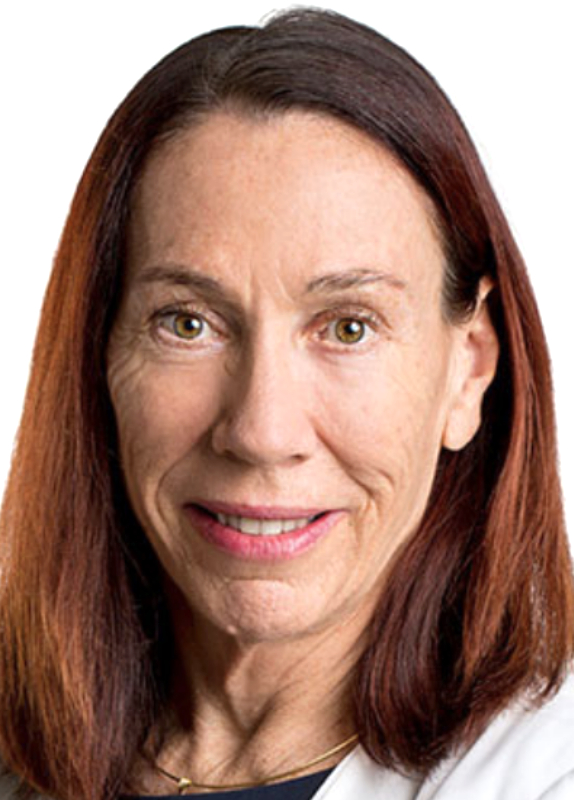
On this date in 1953, politician and labor activist Susan “Sue” Lines was born in Perth, Australia, to Nancy (McCrae), a teacher, and James Lines. Her father was born in England, came to Australia at age 12 as part of a child migration scheme and worked as a baker, carpenter and builder after serving in World War II. Her maternal heritage is Scottish.
Lines held British citizenship by descent until renouncing it in 2013. After her parents separated, she became close to her stepmother Mary Davies. She earned a bachelor of education at Murdoch University in Perth and worked as a teacher and community and union organizer.
In 2002 she became national executive of the Labor Party, the main center-left political party (the Liberal Party is center-right). She served on the party’s national policy committee from 2007-09 and was appointed in 2013 to fill a vacancy in the 76-member national Senate. She was elected to a six-year term in 2016 and reelected in 2022.
As chair in 2018 of the Senate’s procedure committee, she led an inquiry into the current practice of starting sessions with the Lord’s Prayer. The Greens, the third-largest party, proposed ending the practice but the proposal failed. The prayer also opens the House of Representatives.
The practice calls for the president to recite the prayer preceded by “Almighty God: We humbly beseech Thee to vouchsafe Thy special blessing upon this Parliament, and that Thou wouldst be pleased to direct and prosper the work of Thy servants to the advancement of Thy glory, and to the true welfare of the people of Australia.”
The issue returned after Lines was elected Senate president when Labor prevailed in the 2022 federal election. She was the second woman elected to the position and the first from the Labor Party. The Senate procedure committee will again consider dispensing with the invocation.
Commenting on the inclusion of Aboriginal and Torres Strait Islanders in an advisory capacity legislatively, Lines told a reporter that “we’ve had almost every parliamentary leader applaud the diversity of the Parliament, and so if we are genuine about the diversity of the Parliament we cannot continue to say a Christian prayer to open the day.”
"Personally, I would like to see the prayers gone. I'm an atheist. I don't want to say the prayers. If others want to say the prayers they're open to do that. Personally I would like to see them gone but again it's not something I can decree. It's a view of the Senate."
— Interview, The Australian (July 28, 2022)
Ed Miliband
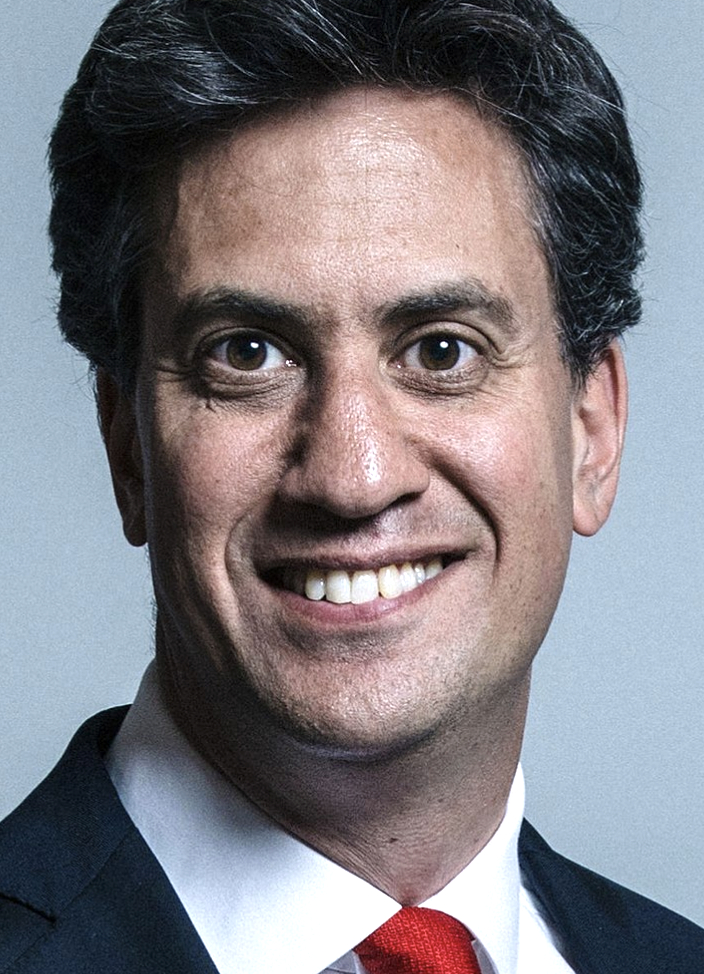
On this date in 1969, Edward Samuel Miliband was born in London to Polish Jewish immigrants who fled to England during the Holocaust. His father, Ralph Miliband, was a prominent sociologist and Marxist scholar and educator. His mother was a feminist and human rights activist. He studied politics and economics at Corpus Christi College at Oxford University and earned a master’s in economics at the London School of Economics.
Miliband’s political career began in 1997 as an adviser to Chancellor of the Exchequer Gordon Brown, a post he held until 2002. He then spent several semesters at Harvard as a visiting scholar in the Center for European Studies, where he taught economics. In 2005 he was elected to Parliament as a Labour Party member and the next year became parliamentary secretary to the Cabinet Office under Prime Minister Tony Blair. In 2007, newly elected Prime Minister Gordon Brown appointed him to a Cabinet position.
After Brown left office in 2010 as prime minister, Miliband and his brother David Miliband both sought to lead the Labour Party, with Ed winning by a narrow margin in 2010. At 40 he was the youngest Leader of the Opposition ever elected. He served until May 2015 when the party lost its majority to the Conservatives. Remaining in the House of Commons, he took a backbench role.
Miliband married jurist Justine Thornton in 2011 and they have two sons together. He also co-hosts a popular podcast, “Reasons to be Cheerful,” with radio presenter Geoff Lloyd.
"I have a particular faith, I describe myself as a Jewish atheist. I'm Jewish by birth origin and it's part of who I am. I don't believe in God, but I think faith is a really important thing for a lot of people.”
— Miliband, quoted in The Telegraph (April 12, 2014)
